
motel8. abandoned motel on the A 30 between Bodmin and Launceston, Cornwall: photo by Leon S-D, 21 February 2008
An end to innocence; or, into the hotel room sink with it
When I was one-and-twenty
I walked all along the Seine
To visit Tyger Tyger on her honeymoon
And she threw up in the sink
To visit Tyger Tyger on her honeymoon
And she threw up in the sink
When I was one-and-twenty
I walked all that way again
In the opposite direction
To escape that awful mess
And again trod that endless rue
And now I am two-and-twenty
And oh, ’tis true, ’tis true
I still don't know what to think
About why Tyger Tyger
Sent me her Little black dress
Later that haunted night, nor what, if anything,
Had I then known
What that poor dear woman
Expected me to do with her little black dress,
I, being myself, would have been
In fact actually able to do.



In fact actually able to do.

IMG_0853 Wuppertal-Oberbarmen, Schwartzbach: photo by kap_7, 14 November 2017

IMG_0853 Wuppertal-Oberbarmen, Schwartzbach: photo by kap_7, 14 November 2017

IMG_0853 Wuppertal-Oberbarmen, Schwartzbach: photo by kap_7, 14 November 2017
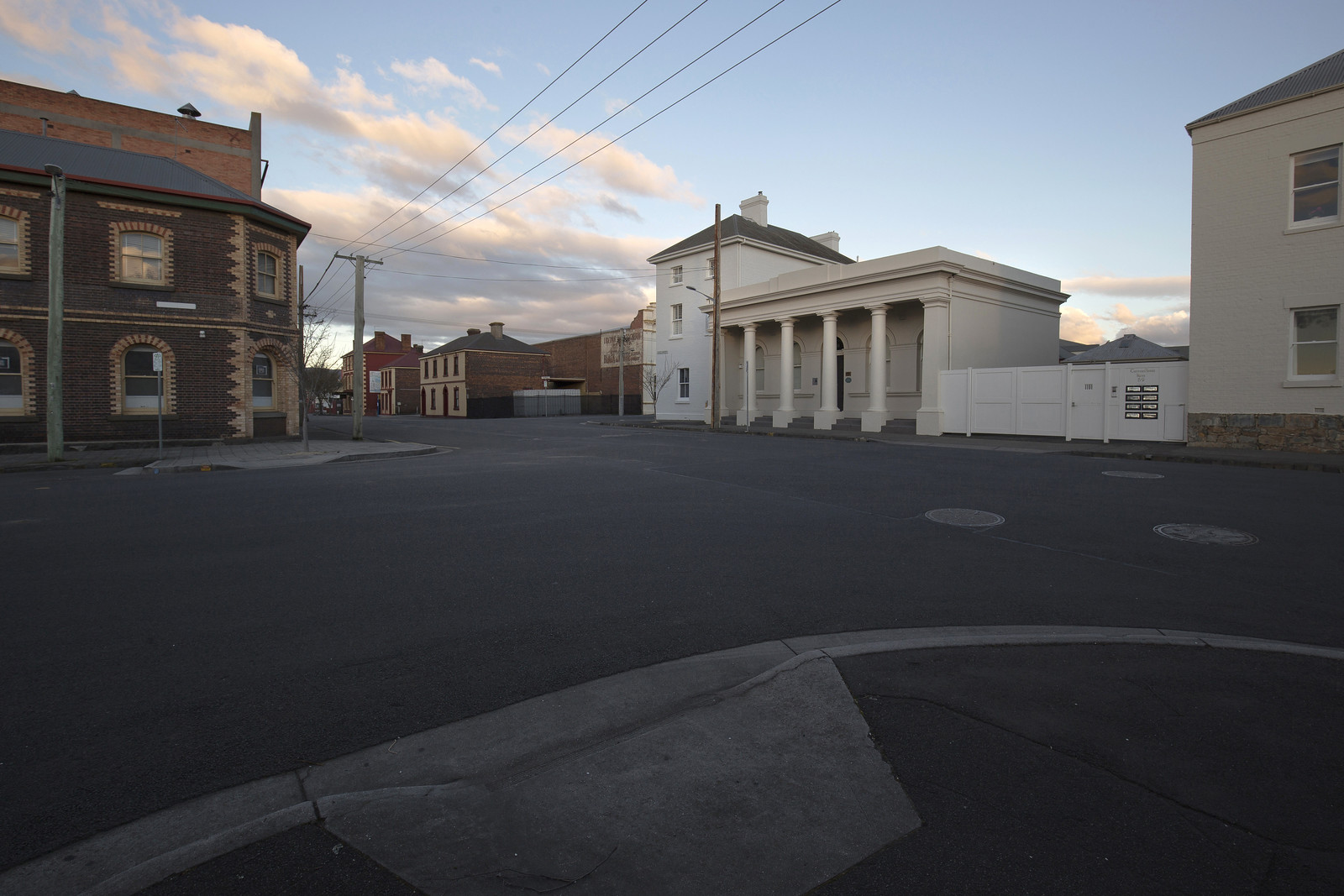
Launceston [Tasmania}: photo by Warren, 16 September 2017


Launceston [Tasmania}: photo by Warren, 16 September 2017

At Malibu (1970)
Going for the tube: photo by Gargoylepeni, 2006
Kowabunga! The amoeba was
mountainous.
Venusian burgers were sailing out
of broken windows
onto my plate. The Fantastic
Baggys were playing.
Down on the corner
of Tubular Boulevard
and Transistor-in-the-Back-of-the- Head Avenue,
near the approach
to the Gaping Maw Freeway,
the 6-to-8-plus
foot waves
were coming in like gangbusters
out back of the
Bar-B-Q Shack.
Jan & Dean
& the Rip Chords
were playing
on portables
in the All-Nite Board Shoppe;
chill were the shakes
mountainous.
Venusian burgers were sailing out
of broken windows
onto my plate. The Fantastic
Baggys were playing.
Down on the corner
of Tubular Boulevard
and Transistor-in-the-Back-of-the- Head Avenue,
near the approach
to the Gaping Maw Freeway,
the 6-to-8-plus
foot waves
were coming in like gangbusters
out back of the
Bar-B-Q Shack.
Jan & Dean
& the Rip Chords
were playing
on portables
in the All-Nite Board Shoppe;
chill were the shakes
and flat the tops.
Wreck of the American Star (ex SS America) seen from distance: photo by Wollex, 2004
Wreck of the American Star (ex SS America) seen from distance: photo by Wollex, 2004
A blue Merc cooked out of the light.
The cars were lined up
like igloos
in front of the
Tastee Freeze.
Greasy smoke was
rising from the
Taco Bell, much as from
the La Brea Tar Pits.
Placid grew the mucoid
plugs of the beauty contestants.
The cars were lined up
like igloos
in front of the
Tastee Freeze.
Greasy smoke was
rising from the
Taco Bell, much as from
the La Brea Tar Pits.
Placid grew the mucoid
plugs of the beauty contestants.
Voices bubbled from
Th' ambient carbon fumes.
"Trig pisses me off."
They were listening to
Danny & the Juniors
on incredible car radios
that picked up 1962.

La Brea Woman (reproduction of only prehistoric human skull found in the tar pits): photo by Franko Fonseca, 2008
in the Sting Ray
wore a locket
with a tiny picture
of an archeopteryx
'tween her round blond
boobies
as she bugled 'cross
the parking lot
of the Howard Johnson's.
Paul Revere & the Raiders
were vooming
out of a legion
of tape decks.
gleaming up at me
from a chinawhite plastic plate
was the yellow mucilage
of a machine fried egg.
Then a spatial cliff
loomed up before me
like a breakfast of grey rock
and spanked my ass.
"Caught some serious air
on that last aerial."
"Jacking up on those ricos."
Making the drop: photo by Ljsurf, 2006
I vommed up a string
of what what looked like bird shit,
and cried out
to the ripped-up air,
"What Me Worry?"
"Shot the eskimo roll
with turtle wax."
"Check it out, that switchfoot dude
got worked."
"Hodad alert!"

Rancho La Brea Tar Pool with fauna: Charles R. Knight, mural in the Hall of Man, American Museum, New York, 1921 (Jesse Earl Hyde Collection, Case Western Reserve University Dept. of Geological Sciences)
Beyond the row of cars
three scraggly
condors perched
alert upon the branch
of a McNabb's Cypress.
One sloth trapped
in the pits
by th' advancing Sabretooth.
Two others watching his back.
Unable to escape from th' asphalt,
wipe out, bones
of th' unfortunate Mylodon
star cross'd
encased in the pit
t'await the Perfect Wave.
Wreck of the American Star (ex SS America), Aug. 21, 2007: photo by Michael Wünsch, 2007
TC: At Malibu (1970)

Joanne Kyger (1934-2017): Homage to Leroi Jones: Dream, 1959 (via The Brooklyn Rail 6 April 2016)

‘I very much hoped that the Buddhist beliefs were true and that in his next life Seagal would be reincarnated as a beautiful woman, with massive boobs’: photo by Cassie Lane via The Guardian, 13 November 2017
2. They are very loyal to other Dharma Committee members and will uphold at all times the Dharma Committee against other factions which attempt to cast mud on the name—especially George Stanley and Jack Spicer.
3. They cook eggs in clean frying pans.
4. If they willingly agree to enter into Sexual intercourse they must fulfill this obligation and not fall asleep drunk with their clothes on.
5. They do not run around giving people life memberships to the Dharma Committee even though these people may be buying free drinks and own The Place.
6. They issue official reprimands.
7. They inform other members at a speed quicker than light of any information they may come across concerning a source of Dexedrine.
8. They have secret badges.
9. No member of the Dharma Committee can have read past page twenty of THE DHARMA b u MS (except Lew Welch because i think he has read the whole book but he has to pretend he hasn’t).
10. They can make up rules as they go along.
11. The Dharma Committee is shrouded in mystery and clothed in secrecy. in addition to this they wear suitable apparel.
12. The Dharma Committee has a handshake and a sign which members cannot indulge. if they do they have to sit in a lotus position for 25 minutes and think about Jack Kerouac.
Joanne Kyger (1934-2017): Dharma Committee Rules, n.d., via THE LOST AND FOUND ARCHIVAL AND PUBLISHING PROJECT AT THE GRADUATE CENTER, CUNY



Seen at Park Street Station, Boston: photo by twoNorm, 24 August 2013
There are people,
in a commonplace way,
Shaking almost uncontrollably,
Flashes of spark break the dim.
Whizzing, dings, and groans
Blocked exits in all directions.
The place; hard seated,
Walking on one another.
There is a ding and god’s voice comes from speakers
"Now approaching Park Street"
everyone moves.
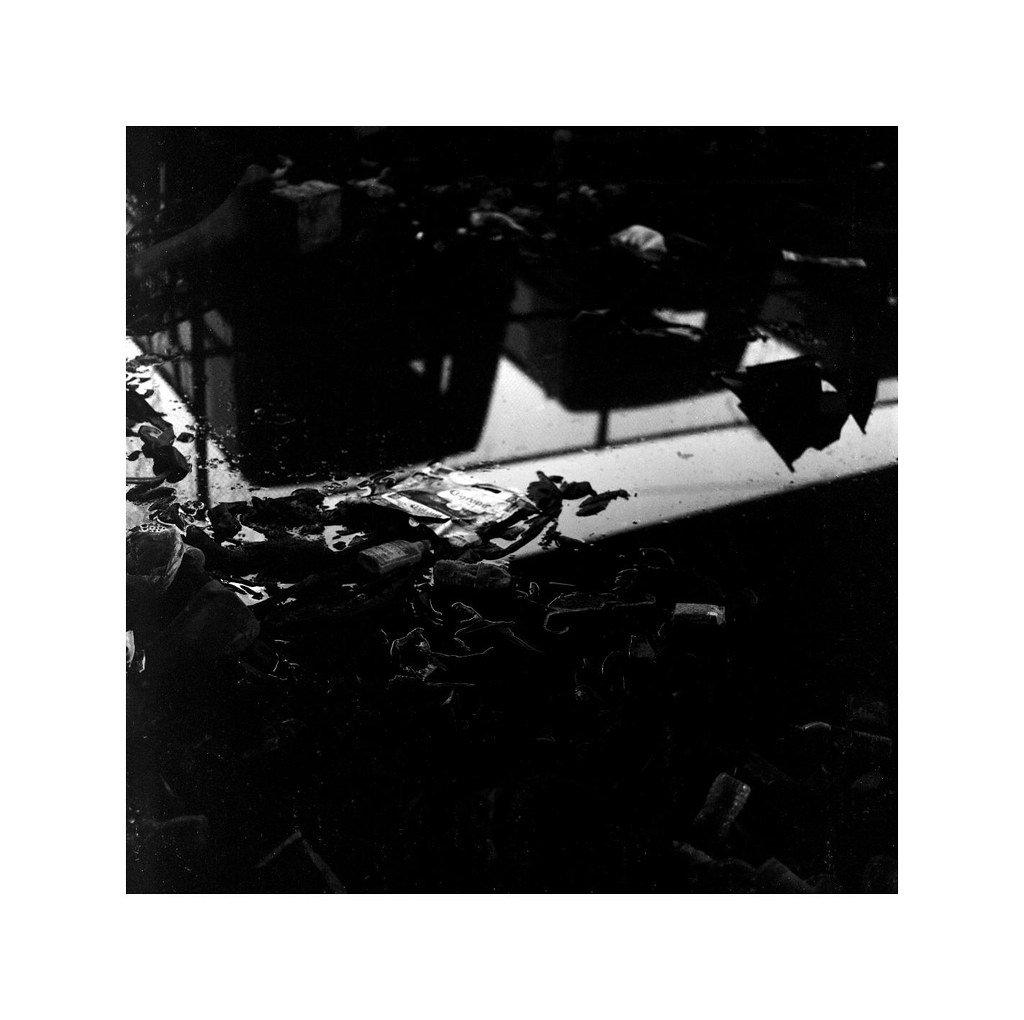

All seeing storefront eye [south LA]: photo by Andrew Murr, 14 November 2017
Joanne Kyger: Homage to Leroi Jones: Two Zen Dreams
February 1959
DREAM
big buddha, really huge, at least 100 feet high. People come up and
pay homage. An earthy lady of the land offers that part of herself.
Then an old woman in her 70s comes up the walk to the buddha and
reaching down grabs a seed from a bowl or basket of fruit and throws it
in the face of the buddha. All the journals on Zen for months afterwards
have articles on “The Woman Who Threw the Pip in the face of the
buddha.”
“i have crossed this ocean 9 times to do this, but never had the nerve until now,” she states.
“i have crossed this ocean 9 times to do this, but never had the nerve until now,” she states.
March 1959
DREAM
DREAM
Albert (Saijo) is not doing Za-Zen right, stopping it short to give a lecture of his own.
Robert Duncan is there, doing La-Zen. With ropes around our waist we
run around the house in the snow. A crack the whip effect is produced
by Robert when he wants.
This is called Running Zen.

‘I very much hoped that the Buddhist beliefs were true and that in his next life Seagal would be reincarnated as a beautiful woman, with massive boobs’: photo by Cassie Lane via The Guardian, 13 November 2017
Joanne Kyger: Dharma Committee Rules
1. All members of the Dharma Committee are Cool. if they stop being cool, other members of the Dharma Committee shall help them get back on a cool again.2. They are very loyal to other Dharma Committee members and will uphold at all times the Dharma Committee against other factions which attempt to cast mud on the name—especially George Stanley and Jack Spicer.
3. They cook eggs in clean frying pans.
4. If they willingly agree to enter into Sexual intercourse they must fulfill this obligation and not fall asleep drunk with their clothes on.
5. They do not run around giving people life memberships to the Dharma Committee even though these people may be buying free drinks and own The Place.
6. They issue official reprimands.
7. They inform other members at a speed quicker than light of any information they may come across concerning a source of Dexedrine.
8. They have secret badges.
9. No member of the Dharma Committee can have read past page twenty of THE DHARMA b u MS (except Lew Welch because i think he has read the whole book but he has to pretend he hasn’t).
10. They can make up rules as they go along.
11. The Dharma Committee is shrouded in mystery and clothed in secrecy. in addition to this they wear suitable apparel.
12. The Dharma Committee has a handshake and a sign which members cannot indulge. if they do they have to sit in a lotus position for 25 minutes and think about Jack Kerouac.
Joanne Kyger (1934-2017): Dharma Committee Rules, n.d., via THE LOST AND FOUND ARCHIVAL AND PUBLISHING PROJECT AT THE GRADUATE CENTER, CUNY
Joanne Kyger and John Wieners: photo by Jerome Mallmann, 1967 (via The Brooklyn Rail)
Joanne Kyger: June 7
June 7. To get a head start
Yea, but I’m too old
Yea, but I’m growing too old
To wait around this long
______________________
Nobody wants to sit with me
_______________________
Forgive this interlude for a while: I became infinitely glamorous and careless, like the best memory, of past loves.
___________________________________________
I often tell women’s secrets to men
___________________________________________
It was open, in the clear gray, morning. Babies cries, and a dog barks, birds shrill from the top of the trees.
I’m going to run away from all this.
I am going to enter into another dimension.
Oh my little head and hope. I am projected ahead. I will realize the continuum from the past.
I will not be abusive, I am smitten in glory.
I am full of hopeful rushing. On into the high out rocking waves.
Joanne Kyger (1934-2017): June 7..., from The Paris Review #56, summer 1973
J. H. Almeida: Park Street Station

Seen at Park Street Station, Boston: photo by twoNorm, 24 August 2013

Seen at Park Street Station, Boston: photo by twoNorm, 24 August 2013

Seen at Park Street Station, Boston: photo by twoNorm, 24 August 2013
in a commonplace way,
Shaking almost uncontrollably,
Flashes of spark break the dim.
Whizzing, dings, and groans
Blocked exits in all directions.
The place; hard seated,
Walking on one another.
There is a ding and god’s voice comes from speakers
"Now approaching Park Street"
everyone moves.

Untitled [Massachusetts]: photo by Bill, 19 May 2017
John Wieners: My Mother
Washington Street under the El, looking toward Egleston Square: photo by Ernst Halberstadt (1910-1987) for U.S. Environmental Protection Agency, February 1973 (National Archives and Records Administration)
talking to strange men on the subway,
doesn't see me when she gets on,
...........at Washington Street
but I hide in a booth at the side
.....and watch her worried, strained face --
..the few years she has got left.
.....Until at South Station
....I lean over and say:
..I've been watching you since you got on.
.......She says in an artificial
..........voice: Oh, for Heaven's sake!
....as if heaven cared.
But I love her in the underground
......and her gray coat and hair
sitting there, one man over from me
......talking together between the wire grates of a cage.
John Wieners (1934-2002): My Mother, from The Ages of Youth in Ace of Pentacles (1964)
doesn't see me when she gets on,
...........at Washington Street
but I hide in a booth at the side
.....and watch her worried, strained face --
..the few years she has got left.
.....Until at South Station
....I lean over and say:
..I've been watching you since you got on.
.......She says in an artificial
..........voice: Oh, for Heaven's sake!
....as if heaven cared.
But I love her in the underground
......and her gray coat and hair
sitting there, one man over from me
......talking together between the wire grates of a cage.
John Wieners (1934-2002): My Mother, from The Ages of Youth in Ace of Pentacles (1964)
Elevated railroad structure and blighted area below Washington Street, looking south from the corner of Bartlett, Boston, Massachusetts: photo by Ernst Halberstadt (1910-1987) for U.S. Environmental Protection Agency, February 1973 (National Archives and Records Administration)
John Wieners to Joanne Kyger
24 Chestnut AveHanover, Massachusetts
February 22. 1970
Dearest Joanne:
How busy you must be not to write your old friend, John. And how successful. How is bolinas? i have Phil Whalen’s new book, On bear’s Head and love it so. Also some plastic over records. Some guy left me 8000 dollars. Will you write me? i am dying of hunger for you. See your poems everywhere. And Nemi Frost. Do you have her address. i will see you Summer of 1971, on my way to China. Shall i send new poems to Tom Clark for The Paris Review. bob Dylan is singing, “For Tonight i’ll be Staying Here with You.”
Monday evening i gave a benefit for the Chicago 7 at the Charles Street Meeting House with Denise Levertov, Anne Sexton, Ron Loewinsohn, James Tate, etc. How is George Stanley and Howard Dull? And irving Rosenthal? i hear from Charles Plymell in baltimore in person that Dave Haselwood is incommunicado, being held prisoner by pseudo Gurdjieff in captivity for his salary.
How busy you must be not to write your old friend, John. And how successful. How is bolinas? i have Phil Whalen’s new book, On bear’s Head and love it so. Also some plastic over records. Some guy left me 8000 dollars. Will you write me? i am dying of hunger for you. See your poems everywhere. And Nemi Frost. Do you have her address. i will see you Summer of 1971, on my way to China. Shall i send new poems to Tom Clark for The Paris Review. bob Dylan is singing, “For Tonight i’ll be Staying Here with You.”
Monday evening i gave a benefit for the Chicago 7 at the Charles Street Meeting House with Denise Levertov, Anne Sexton, Ron Loewinsohn, James Tate, etc. How is George Stanley and Howard Dull? And irving Rosenthal? i hear from Charles Plymell in baltimore in person that Dave Haselwood is incommunicado, being held prisoner by pseudo Gurdjieff in captivity for his salary.
Love,
John Wieners
Joanne Kyger (1934-2017): to John Wieners, 22 February 1970

Grube verplombt, Pendel entwendet / The Pit's Been Sealed, the Penduluum [sic] Purloined [Edgar Allen Poe House and Museum] [Poplar, Philadelphia, Pennsylvania]: photo by Martin Bartholmy, 25 August 2017
D.H. Lawrence: Edgar Allan Poe
POE has no truck with Indians or Nature. He makes no bones about Red Brothers and Wigwams.
He is absolutely concerned with the disintegration-processes of his own psyche. As we have said, the rhythm of American art-activity is dual.
(1) A disintegrating and sloughing of the old consciousness.
(2) The forming of a new consciousness underneath.
Fenimore Cooper has the two vibrations going on together. Poe has only one, only the disintegrative vibration. This makes him almost more a scientist than an artist.
Moralists have always wondered helplessly why Poe's 'morbid' tales need have been written. They need to be written because old things need to die and disintegrate, because the old white psyche has to be gradually broken down before anything else can come to pass.
Man must be stripped even of himself. And it is a painful, sometimes a ghastly process.
Poe had a pretty bitter doom. Doomed to seethe down his soul in a great continuous convulsion of disintegration, and doomed to register the process. And then doomed to be abused for it, when he had performed some of the bitterest tasks of human experience, that can be asked of a man. Necessary tasks, too. For the human soul must suffer its own disintegration, consciously, if ever it is to survive.
But Poe is rather a scientist than an artist. He is reducing his own self as a scientist reduces a salt in a crucible. It is an almost chemical analysis of the soul and consciousness. Whereas in true art there is always the double rhythm of creating and destroying.
This is why Poe calls his things 'tales'. They are a concatenation of cause and effect.
His best pieces, however, are not tales. They are more. They are ghastly stories of the human soul in its disruptive throes.
Moreover, they are 'love' stories.
Ligeia and The Fall of the House of Usher are really love stories.
Love is the mysterious vital attraction which draws things together, closer, closer together. For this reason sex is the actual crisis of love. For in sex the two blood-systems, in the male and female, concentrate and come into contact, the merest film intervening. Yet if the intervening film breaks down, it is death.
So there you are. There is a limit to everything. There is a limit to love.
The central law of all organic life is that each organism is intrinsically isolate and single in itself.
The moment its isolation breaks down, and there comes an actual mixing and confusion, death sets in.
This is true of every individual organism, from man to amoeba.
But the secondary law of all organic life is that each organism only lives through contact with other matter, assimilation, and contact with other life, which means assimilation of new vibrations, non-material. Each individual organism is vivified by intimate contact with fellow organisms: up to a certain point.
So man. He breathes the air into him, he swallows food and water. But more than this. He takes into him the life of his fellow men, with whom he comes into contact, and he gives back life to them. This contact draws nearer and nearer, as the intimacy increases. When it is a whole contact, we call it love. Men live by food, but die if they eat too much. Men live by love, but die, or cause death, if they love too much.
There are two loves: sacred and profane, spiritual and sensual.
In sensual love, it is the two blood-systems, the man's and the woman's, which sweep up into pure contact, and almost fuse. Almost mingle. Never quite. There is always the finest imaginable wall between the two blood-waves, through which pass unknown vibrations, forces, but through which the blood itself must never break, or it means bleeding.
In spiritual love, the contact is purely nervous. The nerves in the lovers are set vibrating in unison like two instruments. The pitch can rise higher and higher. But carry this too far, and the nerves begin to break, to bleed, as it were, and a form of death sets in.
The trouble about man is that he insists on being master of his own fate, and he insists on oneness. For instance, having discovered the ecstasy of spiritual love, he insists that he shall have this all the time, and nothing but this, for this is life. It is what he calls 'heightening' life. He wants his nerves to be set vibrating in the intense and exhilarating unison with the nerves of another being, and by this means he acquires an ecstasy of vision, he finds himself in glowing unison with all the universe.
But as a matter of fact this glowing unison is only a temporary thing, because the first law of life is that each organism is isolate in itself, it must return to its own isolation.
Yet man has tried the glow of unison, called love, and he likes it. It gives him his highest gratification. He wants it. He wants it all the time. He wants it and he will have it. He doesn't want to return to his own isolation. Or if he must, it is only as a prowling beast returns to its lair to rest and set out again.
This brings us to Edgar Allan Poe. The clue to him lies in the motto he chose for Ligeia, a quotation from the mystic Joseph Glanvill:
And the will therein lieth, which dieth not. Who knoweth the mysteries of the will, with its vigour? For God is but a great will pervading all things by nature of its intentness Man doth not yield himself to the angels, nor unto death utterly, save only through the weakness of his feeble will.
It is a profound saying: and a deadly one.
Because if God is a great will, then the universe is but an instrument.
I don't know what God is. But He is not simply a will. That is too simple. Too anthropomorphic. Because a man wants his own will, and nothing but his will, he needn't say that God is the same will, magnified ad infinitum.
For me, there may be one God, but He is nameless and unknowable.
For me, there are also many gods, that come into me and leave me again. And they have very various wills, I must say.
But the point is Poe.
Poe had experienced the ecstasies of extreme spiritual love. And he wanted those ecstasies and nothing but those ecstasies. He wanted that great gratification, the sense of flowing, the sense of unison, the sense of heightening of life. He had experienced this gratification. He was told on every hand that this ecstasy of spiritual, nervous love was the greatest thing in life, was life itself. And he had tried it for himself, he knew that for him it was life itself. So he wanted it. And he would have it. He set up his will against the whole of the limitations of nature.
This is a brave man, acting on his own belief, and his own experience. But it is also an arrogant man, and a fool.
Poe was going to get the ecstasy and the heightening, cost what it might. He went on in a frenzy, as characteristic American women nowadays go on in a frenzy, after the very same thing: the heightening, the flow, the ecstasy. Poe tried alcohol, and any drug he could lay his hand on. He also tried any human being he could lay his hands on.
His grand attempt and achievement was with his wife; his cousin, a girl with a singing voice. With her he went in for the intensest flow, the heightening, the prismayic shades of ecstasy. It was the intensest nervous vibration of unison, pressed higher and higher in pitch, till the blood-vessels of the girl broke, and the blood began to flow out loose. It was love. If you call it love.
Love can be terribly obscene.
It is love that causes the neuroticism of the day. It is love that is the prime cause of tuberculosis.
The nerves that vibrate most intensely in spiritual unisons are the sympathetic ganglia of the breast, of the throat, and the hind brain. Drive this vibration over-intensely, and you weaken the sympathetic tissues of the chest - the lungs - or of the throat, or of the lower brain, and the tubercles are given a ripe hld.
But Poe drove the vibrations beyond any human pitch of endurance.
Being his cousin, she was more easily keyed to him.
Ligeia is the chief story. Ligeia! A mental-derived name. To him the woman, his wife, was not Lucy. She was Ligeia. No doubt she even preferred it thus.
Ligeia is Poe's love-story, and its very fantasy makes it more truly his own story.
It is a tale of love pushed over a verge. And love pushed to extremes in a battle of wills between the lovers.
Love is become a battle of wills.
Which shall first destroy the other, of the lovers? Which can hold out longest, against the other?
Ligeia is still the old-fashioned woman. Her will is still to submit. She wills to submit to the vampire of her husband's consciousness. Even death.
'In stature she was tall, somewhat slender, and, in her latter days, even emaciated. I would in vain attempt to portray the majesty, the quiet ease, of her demeanour or the incomprehensible lightness and elasticity of her footfall.... I was never made aware of her entrance into my closed study, save by the dear music of her low sweet voice, as she placed her marble hand upon my shoulder.'
Poe has been so praised for his style. But it seems to me a meretricious affair. 'Her marble hand' and 'the elasticity of her footfall' seem more like chair-springs and mantel-pieces than a human creature. She never was quite a human creature to him. She was an instrument from which he got his extremes of sensation. His machine a plaisir, as somebody says.
All Poe's style, moreover, has this mechanical quality, as his poetry has a mechanical rhythm. He never sees anything in terms of life, almost always in terms of matter, jewels, marble, etc., - or in terms of force, scientific. And his cadences are all managed mechanically. This is what is called 'having a style'.
What he wants to do with Ligeia is to analyse her, till he knows all her component parts, till he has got her all in his consciousness. She is some strange chemical salt which he must analyse out in the test-tubes of his brain, and then - when he's finished the analysis - E finita la commedia!
But she won't be quite analysed out. There is something, something he can't get. Writing of her eyes, he says: 'They were, I must believe, far larger than the ordinary eyes of our own race' - as if anybody would want eyes 'far larger' than other folks'. 'They were even fuller than the fullest of the gazelle eyes of the tribe of the valley of Nourjahad' - which is blarney. 'The hue of the orbs was the most brilliant of black and, far over them, hung jetty lashes of great length' - suggests a whip-lash. 'The brows, slightly irregular in outline, had the same tint. The "strangeness", however, which I found in the eyes, was of a nature distinct from the formation, or the colour or the brilliancy of the features, and must, after all, be referred to the expression.' - Sounds like an anatomist anatomizing a cat -
'Ah, word of no meaning! behind whose vast latitude of mere sound we entrench our ignorance of so much of the spiritual. The expression of the eyes of Ligeia! How for long hours have I pondered upon it! How have I, through the whole of a midsummer night, struggled to fathom it! What was it - that something more profound than the well of Democritus - which lay far within the pupils of my beloved! What was it? I was possessed with a passion to discover ...'
It is easy to see why each man kills the thing he loves. To know a living thing is to kill it.
You have to kill a thing to know it satisfactorily. For this reason, the desirous consciousness, the SPIRIT, is a vampire.
One should be sufficiently intelligent and interested to know a good deal about any person one comes into close contact with. About her. Or about him.
But to try to know any living being is to try to suck the life out of that being.
Above all things, with the woman one loves. Every sacred instinct teaches one that one must leave her unknown. You know your woman darkly, in the blood. To try to know her mentally is to try to kill her. Beware, oh woman, of the man who wants to find out what you are. And, oh men, beware a thousand times more of the woman who wants to know you or get you, what you are.
It is the temptation of a vampire fiend, is this knowledge.
Man does so horribly want to master the secret of life and of individuality with his mind. It is like the analysis of protoplasm. You can only analyse dead protoplasm, and know its constituents. It is a death-process.
Keep KNOWLEDGE for the world of matter, force, and function. It has got nothing to do with being.
But Poe wanted to know - wanted to know what was the strangeness in the eyes of Ligeia.
She might have told him it was horror at his probing, horror at being vamped by his consciousness.
But she wanted to be vamped. She wanted to be probed by his consciousness, to be KNOWN. She paid for wanting it, too.
Nowadays it is usually the man who wants to be vamped, to be KNOWN.
Edgar Allan probed and probed. So often he seemed on the verge. But she went over the verge of death before he came over the verge of knowledge. And it is always so.
He decided, therefore, that the clue to the strangeness lay in the mystery of will. 'And the will therein lieth, which dieth not . . .'
Ligeia had a ' gigantic volition'. ... 'An intensity in thought, action, or speech was possibly, in her, a result, or at least an index' (he really meant indication) 'of that gigantic volition which, during our long intercourse, failed to give other and more immediate evidence of its existence.'
I should have thought her long submission to him was chief and ample 'other evidence'.
'Of all the women whom I have ever known, she, the outwardly calm, the ever-placid Ligeia, was the most violently a prey to the tumultuous vultures of stern passion. And of such passion I could form no estimate, save by the miraculous expansion of those eyes which at once so delighted and appalled me - by the almost magical melody, modulation distinctness, and placidity of her very low voice - and by the fierce energy (rendered doubly effective by contrast with her manner of utterance) of the wild words which she habitually uttered.'
Poor Poe, he had caught a bird of the same feather as himself. One of those terrible cravers, who crave the further sensation. Crave to madness or death. 'Vultures of stern passion' indeed! Condors.
But having recognized that the clue was in her gigantic volition, he should have realized that the process of this loving, this craving, this knowing, was a struggle of wills. But Ligeia, true to the great tradition and mode of womanly love, by her will kept herself submissive, recipient. She is the passive body who is explored and analysed into death. And yet, at times, her great female will must have revolted. 'Vultures of stern passion!' With a convulsion of desire she desired his further probing and exploring. To any lengths. But then, 'tumultuous vultures of stern passion'. She had to fight with herself.
But Ligeia wanted to go on and on with the craving, with the love, with the sensation, with the probing, with the knowing, on and on to the end.
There is no end. There is only the rupture of death. That's where men, and women, are 'had'. Man is always sold, in his search for final KNOWLEDGE.
'That she loved me I should not have doubted; and I might have been easily aware that, in a bosom such as hers, love would have reigned no ordinary passion. But in death only was I fully impressed with the strength of her affection. For long hours, detaining my hand, would she pour out before me the overflowing of a heart whose more than passionate devotion amounted to idolatry.'
(Oh, the indecency of all this endless intimate talk!)
'How had I deserved to be so blessed by such confessions? (Another man would have felt himself cursed.) How had I deserved to be so cursed with the removal of my beloved in the hour of her making them? But upon this subject I cannot bear to dilate. Let me say only that in Ligeia's more than womanly abandonment to a love, alas! all unmerited, all unworthily bestowed, I at length recognized the principle of her longing, with so wildly earnest a desire, fot the life which was now fleeing so rapidly away. It is this wild longing - it is this eager vehemence of desire for life - but for life, that I have no power to portray, no utterance capable of expressing.'
Well, that is ghastly enough, in all conscience.
'And from them that have not shall be taken away even that which they have.'
'To him that hath life shall be given life, and from him that hath not life shall be taken away even that life which he hath.'
Or her either.
These terribly conscious birds, like Poe and his Ligeia, deny the very life that is in them; they want to turn it all into talk, into knowing. And so life, which will not be known, leaves them.
But poor Ligeia, how could she help it? It was her doom. All the centuries of the SPIRIT, all the years of American rebellion against the Holy Ghost, had done it to her.
She dies, when she would rather do anything than die. And when she dies the clue, which he only lived to grasp, dies with her.
Foiled!
Foiled!
No wonder she shrieks with her last breath.
On the last day Ligeia dictates to her husband a poem. As poems go, it is rather false, meretricious. But put yourself in Ligeia's place, and it is real enough, and ghastly beyond bearing.
Out - out are all the lights - out all!
And over each quivering form
The curtain, a funeral pall,
Comes down with the rush of a storm,
While the angels, all pallid and wan,
Uprising, unveiling, affirm?
That the play is the tragedy, 'Man',
And its hero, the Conqueror Worm.
Which is the American equivalent for a William Blake poem. For Blake, too, was one of these ghastly, obscene 'Knowers'.
"'O God!" half shrieked Ligeia, leaping to her feet and extending her arms aloft with a spasmodic movement, as I made an end of these lines - "O God! O Divine Father! shall these things be undeviatingly so? Shall this conqueror be not once conquered? Are we not part and parcel in Thee? Who - who knoweth the mysteries of the will with its vigour? Man doth not yield him to the angels, nor unto death utterly, save only through the weakness of his feeble will."'
So Ligeia dies. And yields to death at least partly. Anche troppo.
As for her cry to God - has not God said that those who sin against the Holy Ghost shall not be forgiven?
And the Holy Ghost is within us. It is the thing that prompts us to be real, not to push our own cravings too far, not to submit to stunts and high-falutin, above all, not to be too egoistic and wilful in our conscious self, but to change as the spirit inside us bids us change, and leave off when it bids us leave off, and laugh when we must laugh, particularly at ourselves, for in deadly earnestness there is always something a bit ridiculous. The Holy Ghost bids us never be too deadly in our earnestness, always to laugh in time, at ourselves and everything. Particularly at our sublimities. Everything has its hour of ridicule - everything.
Now Poe and Ligeia, alas, couldn't laugh. They were frenziedly earnest. And frenziedly they pushed on this vibration of consciousness and unison in consciousness. They sinned against the Holy Ghost that bids us all laugh and forget, bids us know our own limits. And they weren't forgiven.
Ligeia needn't blame God. She had only her own will, her 'gigantic volition' to thank, lusting after more consciousness, more beastly KNOWING.
Ligeia dies. The husband goes to England, vulgarly buys or rents a gloomy, grand old abbey, puts it into some sort of repair, and furnishes it with exotic, mysterious, theatrical splendour. Never anything open and real. This theatrical 'volition' of his. The bad taste of sensationalism.
Then he marries the fair-haired, blue-eyed Lady Rowena Trevanion, of Tremaine. That is, she would be a sort of Saxon-Cornish blue-blood damsel. Poor Poe!
'In halls such as these - in a bridal chamber such as this - I passed with the Lady of Tremaine, the unhallowed hours of the first month of our marriage - passed them with but little disquietude. That my wife dreaded the fierce moodiness of my temper - that she shunned me and loved me but little - I could not help perceiving but it gave me rather pleasure than otherwise. loathed her with a hatred belonging more to demon than to man. My memory flew back (oh, with what intensity of regret!) to Ligeia, the beloved, the august, the beautiful, the entombed. I revelled in recollections of her purity . . .' etc.
Now the vampire lust is consciously such.
In the second month of the marriage the Lady Rowena fell ill. It is the shadow of Ligeia hangs over her. It is the ghostly Ligeia who pours poison into Rowena's cup. It is the spirit of Ligeia, leagued with the spirit of the husband, that now lusts in the slow destruction of Rowena. The two vampires dead wife and living husband.
For Ligeia has not yielded unto death utterly. Her taxed, frustrated will comes back in vindictiveness. She could not have her way in life. So she, too, will find victims in life. And the husband, all the time, only uses Rowena as a living body on which to wreak his vengeance for his being thwarted with Ligeia. Thwarted from the final KNOWING her.
And at last from the corpse of Rowena, Ligeia rises. Out of her death, through the door of a corpse they have destroyed between them, reappears Ligeia, still trying to have her will, to have more love and knowledge, the final gratification which is never final, with her husband.
For it is true, as William James and Conan Doyle and the rest allow, that a spirit can persist in the after-death. Persist by its own volition. But usually, the evil persistence of a thwarted will, returning for vengeance on life. Lemures, vampires.
It is a ghastly story of the assertion of the human will, the will-to-love and the will-to-consciousness, asserted against death itself. The pride of human conceit in KNOWLEDGE.
There are terrible spirits, ghosts, in the air of America.
Eleanora, the next story, is a fantasy revealing the sensational delights of the man in his early marriage with the young and tender bride. They dwelt, he, his cousin and her mother, in the sequestered Valley of Many-coloured Grass, the valley of prismatic sensation, where everything seems spectrum-coloured. They looked down at their own images in the River of Silence, and drew the god Eros from that wave: out of their own self-consciousness, that is. This is a description of the life of introspection and of the love which is begotten by the self in the self, the self-made love. The trees are like serpents worshipping the sun. That is, they represent the phallic passion in its poisonous or mental activity. Everything runs to consciousness: serpents worshipping the sun. The embrace of love, which should bring darkness and oblivion, would with these lovers be a daytime thing bringing more heightened consciousness, visions, spectrum-visions, prismatic. The evil thing that daytime love-making is, and all sex-palaver.
In Berenice the man must go down to the sepulchre of his beloved and pull out her thirty-two small white teeth, which he carries in a box with him. It is repulsive and gloating. The teeth are the instruments of biting, of resistance, of antagonism. They often become symbols of opposition, little instruments or entities of crushing and destroying. Hence the dragon's teeth in the myth. Hence the man in Berenice must take possession of the irreducible part of his mistress. 'Toutes ses dents etaient des idees,' he says. Then they are little fixed ideas of mordant hate, of which he possesses himself.
The other great story linking up with this group is The Fall of the House of Usher. Here the love is between brother and sister. When the self is broken, and the mystery of the recognition of otherness fails, then the longing for identification with the beloved becomes a lust. And it is this longing for identification, utter merging, which is at the base of the incest problem. In psychoanalysis almost every trouble in the psyche is traced to an incest-desire. But it won't do. Incest-desire is only one of the modes by which men strive to get their gratification of the intensest vibration of the spiritual nerves without any resistance. In the family, the natural vibration is most nearly in unison. With a stranger there is greater resistance. Incest is the getting of gratification and the avoiding of resistance.
The root of all evil is that we all want this spiritual gratification, this flow, this apparent heightening of life, this knowledge, this valley of many-coloured grass, even grass and light prismatically decomposed, giving ecstasy. We want all this without resistance. We want it continually. And this is the root of all evil in us.
We ought to pray to be resisted, and resisted to the bitter end. We ought to decide to have done at last with craving.
The motto to The Fall of the House of Usher is a couple of lines from Beranger.
Son coeur est un luth suspendu:
Sitot qu'on le touche il resonne.
We have all the trappings of Poe's rather overdone, vulgar fantasy. 'I reined my horse to the precipitous brink of a black and lurid tarn that lay in unruffled lustre by the dwelling, and gazed down - but with a shudder even more thrilling than before - upon the remodelled and inverted images of the grey sedge, and the ghastly tree-stems, and the vacant and eye-like windows.' The House of Usher, both dwelling and family, was very old. Minute fungi overspread the exterior of the house, hanging in festoons from the eaves. Gothic archways, a valet of stealthy step, sombre tapestries, ebon black floors, a profusion of tattered and antique furniture, feeble gleams of encrimsoned light through latticed panes, and over all 'an air of stern, deep, and irredeemable gloom' - this makes up the interior.
The inmates of the house, Roderick and Madeline Usher, are the last remnants of their incomparably ancient and decayed race. Roderick has the same large, luminous eye, the same slightly arched nose of delicate Hebrew model, as characterized Ligeia. He is ill with the nervous malady of his family. It is he whose nerves are so strung that they vibrate to the unknown quiverings of the ether. He, too, has lost his self, his living soul, and become a sensitized instrument of the external influences; his nerves are verily like an aeolian harp which must vibrate. He lives in 'some struggle with the grim phantasm, Fear,' for he is only the physical, post-mortem reality of a living being.
It is a question how much, once the true centrality of the self is broken, the instrumental consciousness of man can register. When man becomes selfless, wafting instrumental like a harp in an open window, how much can his elemental consciousness express? The blood as it runs has its own sympathies and responses to the material world, quite apart from seeing. And the nerves we know vibrate all the while to unseen presences, unseen forces.
So Roderick Usher quivers on the edge of material existence.
It is this mechanical consciousness which gives 'the fervid facility of his impromptus'. It is the same thing that gives Poe his extraordinary facility in versification. The absence of real central or impulsive being in himself leaves him inordinately, mechanically sensitive to sounds and effects, associations of sounds, associations of rhyme, for example - mechanical, facile, having no root in any passion. It is all a secondary, meretricious process. So we get Roderick Usher's poem, The Haunted Palace, with its swift yet mechanical subtleties of rhyme and rhythm, its vulgarity of epithet. It is all a sort of dream-process, where the association between parts is mechanical, accidental as far as passional meaning goes.
Usher thought that all vegetable things had sentience. Surely all material things have a form of sentience, even the inorganic: surely they all exist in some subtle and complicated tension of vibration which makes them sensitive to external influence and causes them to have an influence on other external objects, irrespective of contact. It is of this vibration or inorganic consciousness that Poe is master: the sleep-consciousness.
Thus Roderick Usher was convinced that his whole surroundings, the stones of the house, the fungi, the water in the tarn, the very reflected image of the whole, was woven into a physical oneness with the family, condensed, as it were, into one atmosphere - the special atmosphere in which alone the Ushers could live. And it was this atmosphere which had moulded the destinies of his family.
But while ever the soul remains alive, it is the moulder and not the moulded. It is the souls of living men that subtly impregnate stones, houses, mountains, continents, and give these their subtlest form. People only become subject to stones after having lost their integral souls.
In the human realm, Roderick had one connection: his sister Madeline. She, too, was dying of a mysterious disorder, nervous, cataleptic. The brother and sister loved each other passionately and exclusively. They were twins, almost identical in looks. It was the same absorbing love between them, this process of unison in nerve-vibration, resulting in more and more extreme exaltation and a sort of consciousness, and a gradual break-down into death. The exquisitely sensitive Roger, vibrating without resistance with his sister Madeline, more and more exquisitely, and gradually devouring her, sucking her life like a vampire in his anguish of extreme love. And she asking to be sucked.
'Madeline died and was carried down by her brother into the deep vaults of the house. But she was not dead. Her brother roamed about in incipient madness - a madness of unspeakable terror and guilt. After eight days they were suddenly startled by a clash of metal, then a distinct, hollow metallic, and clangorous, yet apparently muffled, reverberation. Then Roderick Usher, gibbering, began to express himself: 'We have put her living in the tomb! Said I not that my senses were acute? I now tell you that I heard her first feeble movements in the hollow coffin. I heard them - many, many days ago - yet I dared not - I dared not speak.'
It is the same old theme of 'each man kills the thing he loves'. He knew his love had killed her. He knew she died at last, like Ligeia, unwilling and unappeased. So, she rose again upon him.
But then without those doors there did stand the lofty and enshrouded figure of the lady Madeline of Usher. There was blood upon her white robes, and the evidence of some bitter struggle upon every portion of her emaciated frame. For a moment she remained trembling and reeling to and fro upon the threshold, then, with a low moaning cry, fell heavily inward upon the person of her brother, and in her violent and now final death-agonies bore him to the floor a corpse, and a victim to the terrors he had anticipated.
It is lurid and melodramatic, but it is true. It is a ghastly psychological truth of what happens in the last stages of this beloved love, which cannot be separate, cannot be isolate, cannot listen in isolation to the isolate Holy Ghost. For it is the Holy Ghost we must live by. The next era is the era of the Holy Ghost. And the Holy Ghost speaks individually inside each individual: always, for ever a ghost. There is no manifestation to the general world. Each isolate individual listening in isolation to the Holy Ghost within him.
The Ushers, brother and sister, betrayed the Holy Ghost in themselves. They would love, love, without resistance. They would love, they would merge, they would be as one thing. So they dragged each other down into death. For the Holy Ghost says you must not be as one thing with another being. Each must abide by itself, and correspond only within certain limits.
The best tales all have the same burden. Hate is as inordinate as love, and as slowly consuming, as secret, as underground, as subtle. All this underground vault business in Poe only symbolizes that which takes place beneath the consciousness. On top, all is fair-spoken. Beneath, there is awful murderous extremity of burying alive. Fortunato, in The Cask of Amontillado, is buried alive out of perfect hatred, as the lady Madeline of Usher is buried alive out of love. The lust of hate is the inordinate desire to consume and unspeakably possess the soul of the hated one, just as the lust of love is the desire to possess, or to be possessed by, the beloved, utterly. But in either case the result is the dissolution of both souls, each losing itself in transgressing its own bounds.
The lust of Montresor is to devour utterly the soul of Fortunato. It would be no use killing him outright. If a man is killed outright his soul remains integral, free to return into the bosom of some beloved, where it can enact itself. In walling-up his enemy in the vault, Montresor seeks to bring about the indescribable capitulation of the man's soul, so that he, the victor, can possess himself of the very being of the vanquished. Perhaps this can actually be done. Perhaps, in the attempt, the victor breaks the bonds of his own identity, and collapses into nothingness, or into the infinite. Becomes a monster.
What holds good for inordinate hate holds good for inordinate love. The motto, Nemo me impune lacessit, might just as well be Nemo me impune amat.
In William Wilson we are given a rather unsubtle account of the attempt of a man to kill his own soul. William Wilson the mechanical, lustful ego succeeds in killing William Wilson the living self. The lustful ego lives on, gradually reducing itself towards the dust of the infinite.
In the Murders in the Rue Morgue and The Gold Bug we have those mechanical tales where the interest lies in the following out of a subtle chain of cause and effect. The interest is scientific rather than artistic, a study in psychologic reactions.
The fascination of murder itself is curious. Murder is not just killing. Murder is a lust to get at the very quick of life itself, and kill it - hence the stealth and the frequent morbid dismemberment of the corpse, the attempt to get at the very quick of the murdered being, to find the quick and to possess it. It is curious that the two men fascinated by the art of murder, though in different ways, should have been De Quincey and Poe, men so different in way of life, yet perhaps not so widely different in nature. In each of them is traceable that strange lust for extreme love and extreme hate, possession by mystic violence of the other soul, or violent deathly surrender of the soul in the self: an absence of manly virtue, which stands alone and accepts limits.
Inquisition and torture are akin to murder: the same lust. It is a combat between inquisitor and victim as to whether the inquisitor shall get at the quick of life itself, and pierce it. Pierce the very quick of the soul. The evil will of man tries to do this. The brave soul of man refuses to have the life-quick pierced in him. It is strange: but just as the thwarted will can persist evilly, after death, so can the brave spirit preserve, even through torture and death, the quick of life and truth. Nowadays society is evil. It finds subtle ways of torture, to destroy the life-quick, to get at the life-quick in a man. Every possible form. And still a man can hold out, if he can laugh and listen to the Holy Ghost. - But society is evil, evil, and love is evil. And evil breeds evil, more and more.
So the mystery goes on. La Bruyere says that all our human unhappiness viennent de ne pouvoir etre seuls. As long as man lives he will be subject to the yearning of love or the burning of hate, which is only inverted love.
But he is subject to something more than this. If we do not live to eat, we do not live to love either.
We live to stand alone, and listen to the Holy Ghost. The Holy Ghost, who is inside us, and who is many gods. Many gods come and go, some say one thing and some say another, and we have to obey the God of the innermost hour. It is the multiplicity of gods within us make up the Holy Ghost.
But Poe knew only love, love, love, intense vibrations and heightened consciousness.
Drugs, women, self-destruction, but anyhow the prismatic ecstasy of heightened consciousness and sense of love, of flow. The human soul in him was beside itself. But it was not lost. He told us plainly how it was, so that we should know.
He was an adventurer into vaults and cellars and horrible underground passages of the human soul. He sounded the horror and the warning of his own doom.
Doomed he was. He died wanting more love, and love killed him. A ghastly disease, love.
Poe telling us of his disease: trying even to make his disease fair and attractive. Even succeeding.
Which is the inevitable falseness, duplicity of art, American art in particular.
D.H. Lawrence: Edgar Allan Poe, from Studies in Classic American Literature (1923)




The High-Rise [Sharpsburg, Pittsburgh]: photo by David Grim, 15 October 2017
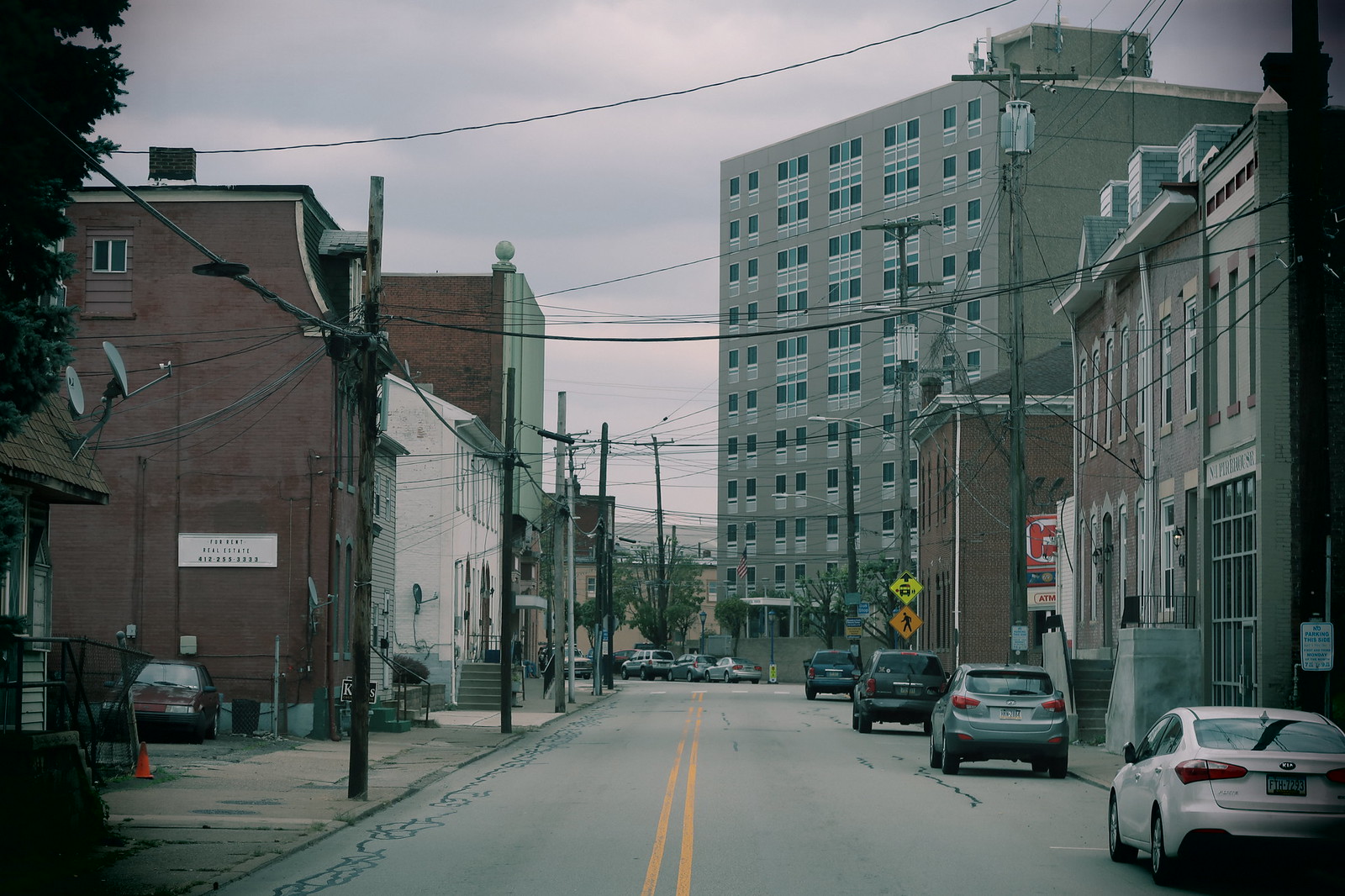
The High-Rise [Sharpsburg, Pittsburgh]: photo by David Grim, 15 October 2017

The High-Rise [Sharpsburg, Pittsburgh]: photo by David Grim, 15 October 2017

old houses [Chinatown, Vancouver]: photo by Tyler Wilson, 4 October 2017
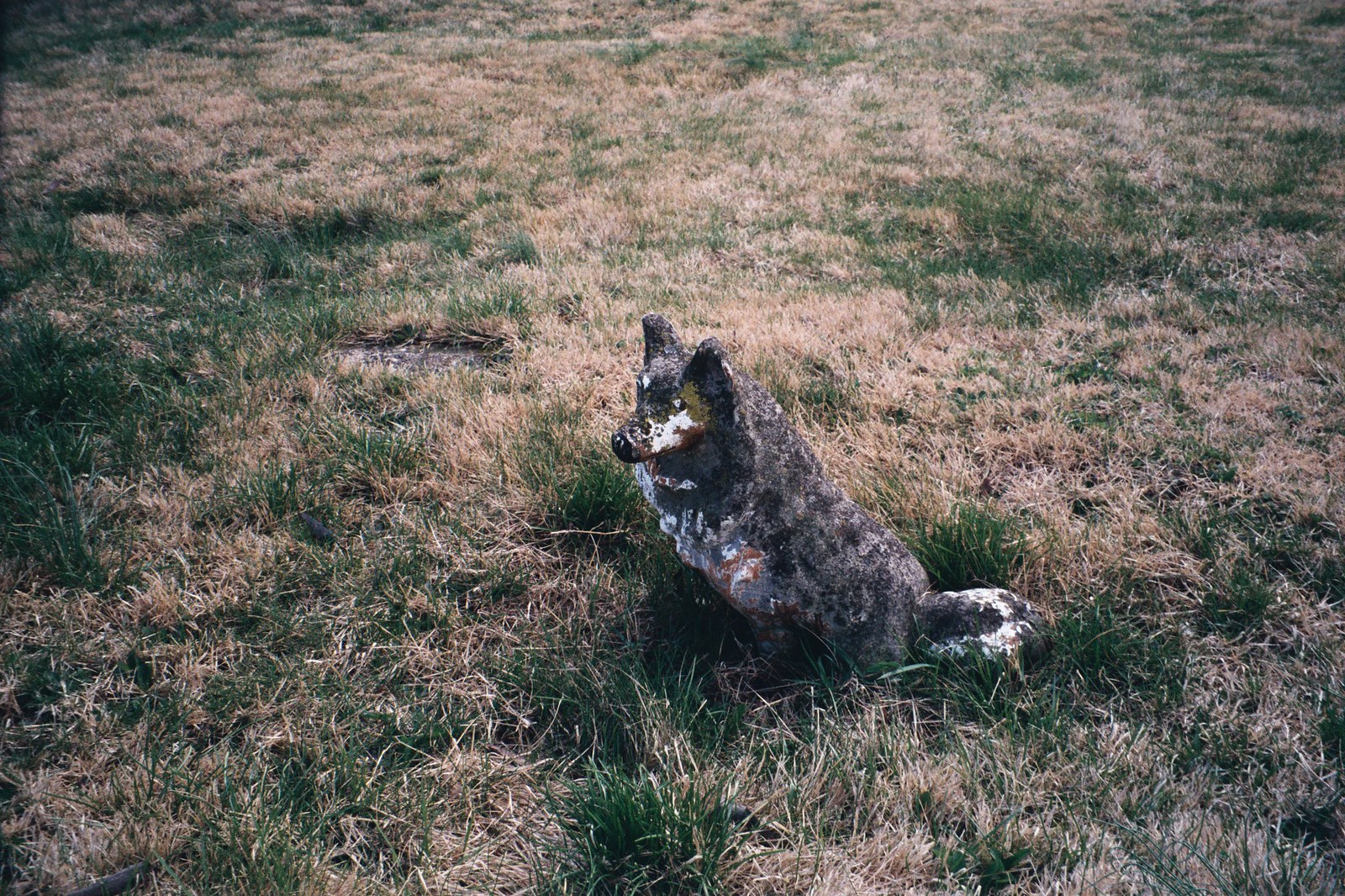
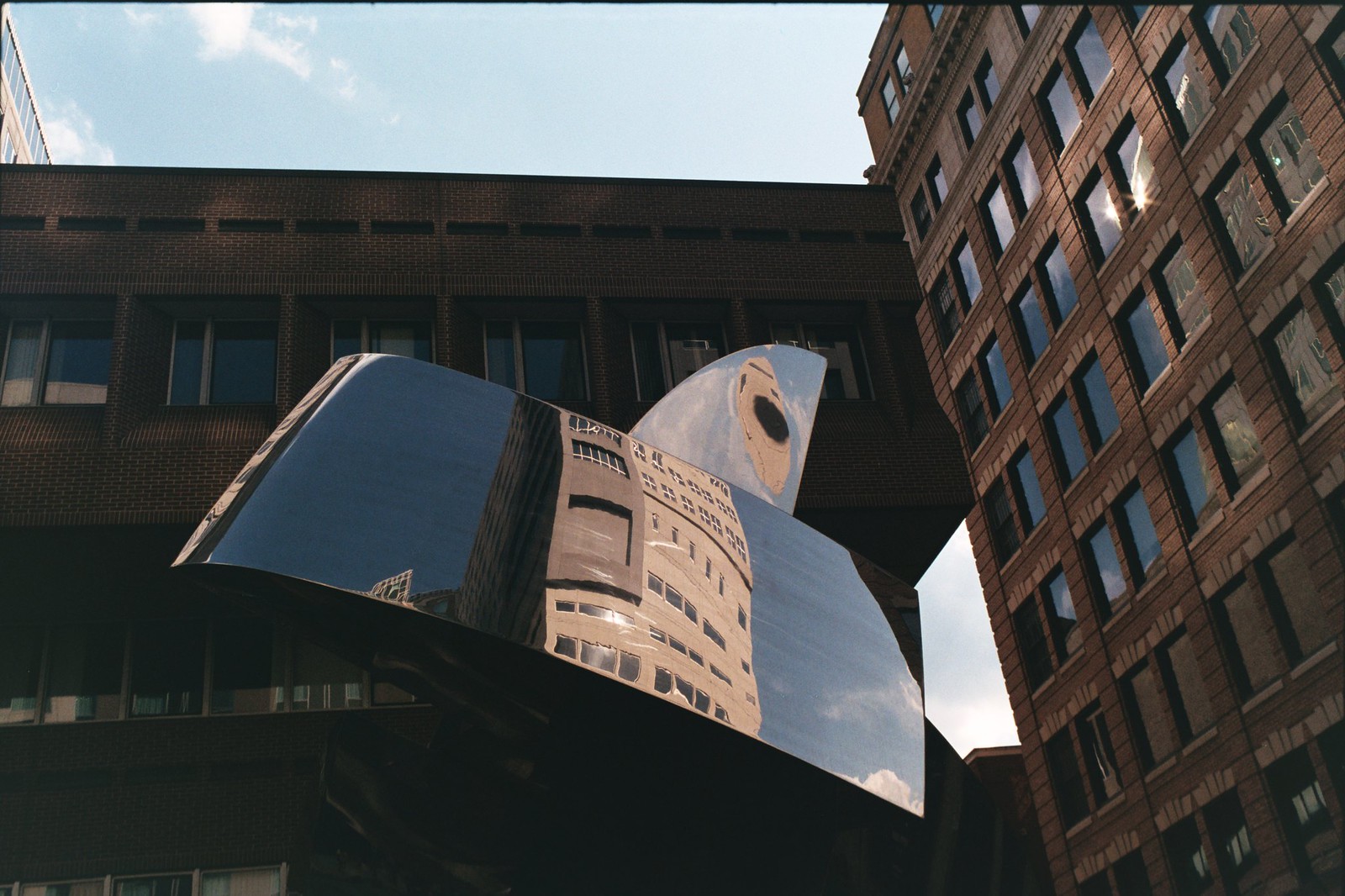



Installation [Georg-Kolbe-Museum, Charlottenburg, Berlin]: photo by Martin Bartholmy, 15 September 2017
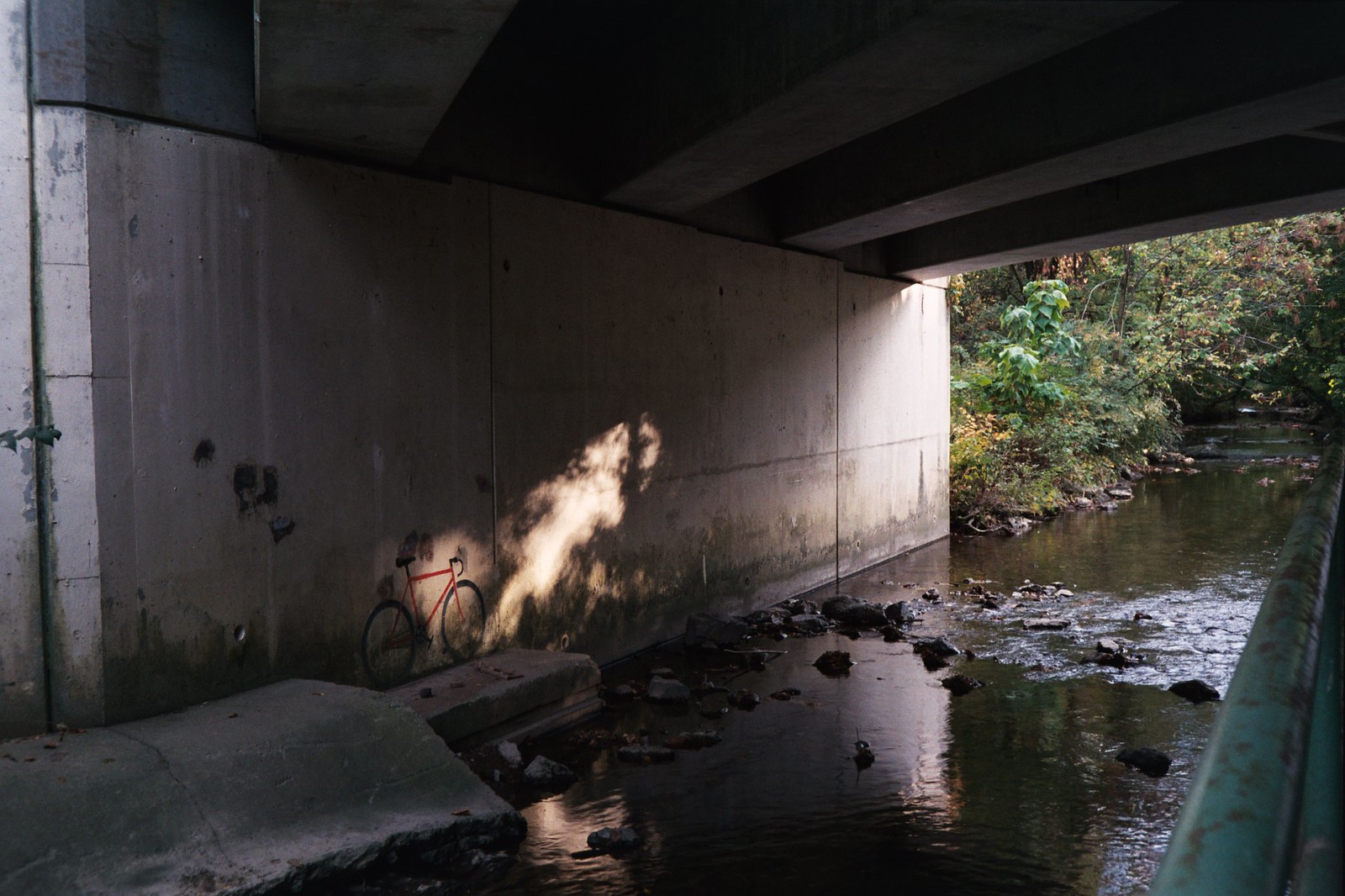


(a presence) [Steelton, PA]: photo by William Keckler, 5 November 2017
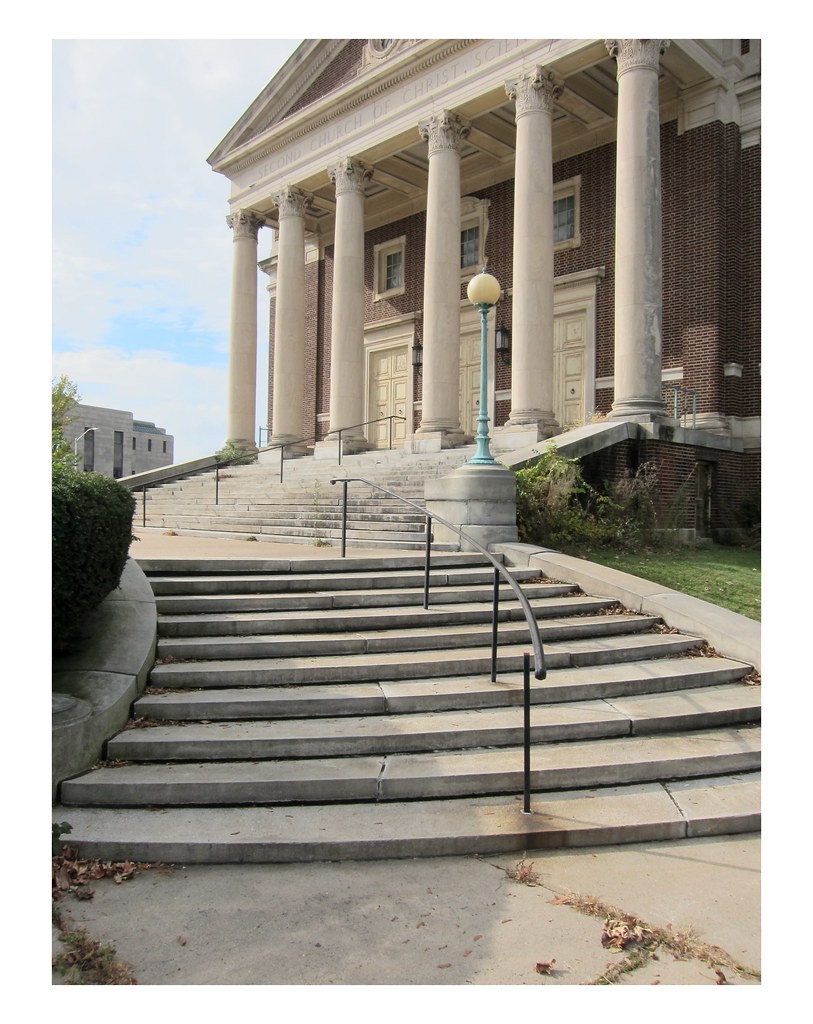
Halbe Treppe / Mezzanine [Second Church of Christ, Christian Science, Hartford, Connecticut]: photo by Martin Bartholmy, 2 November 2017

(mother night): photo by William Keckler, 2 November 2017

(mother night): photo by William Keckler, 2 November 2017

(mother night): photo by William Keckler, 2 November 2017
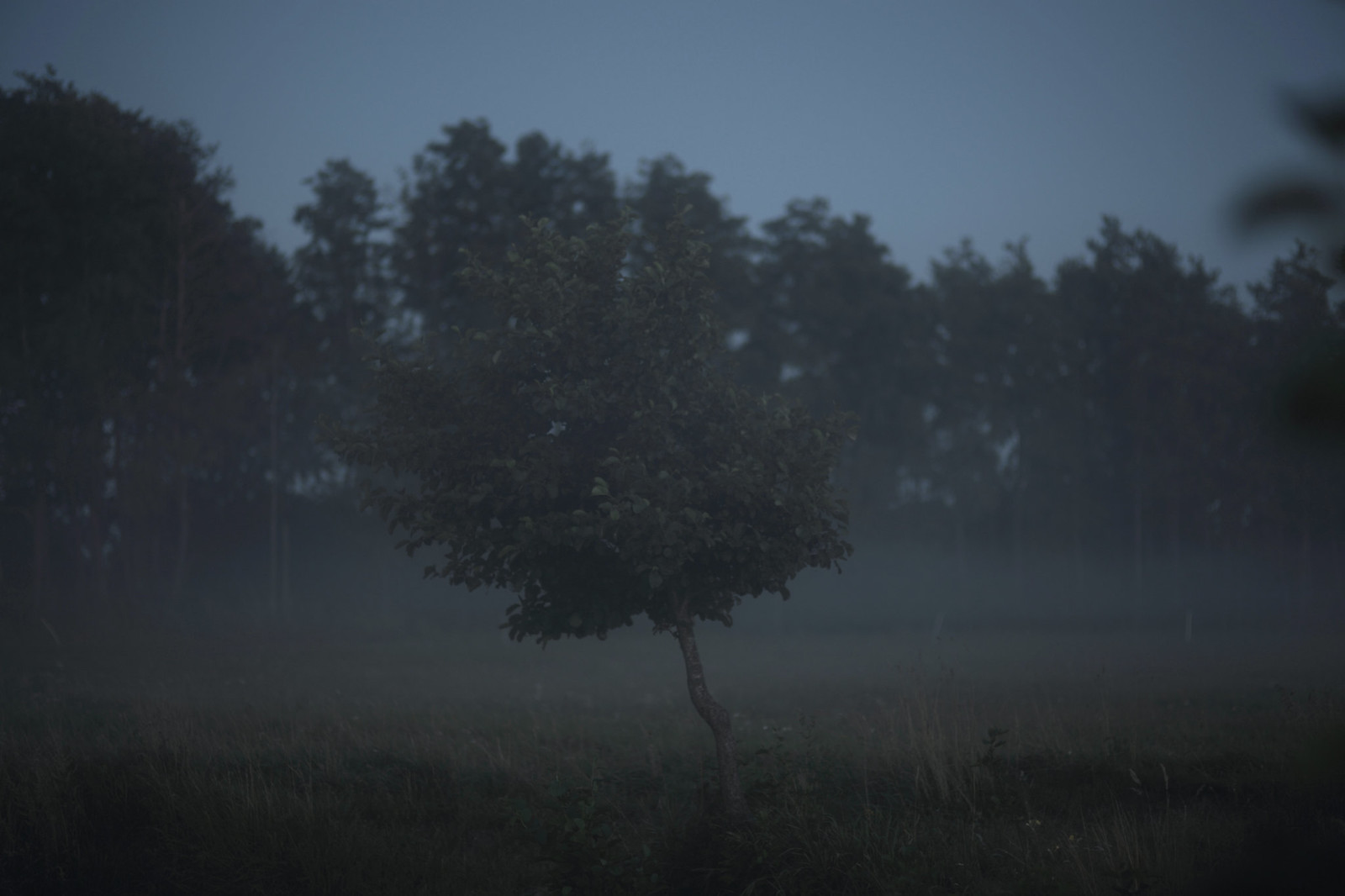
journey in this summer night III: photo by Mindaugas Buivydas, 14 August 2017

journey in this summer night III: photo by Mindaugas Buivydas, 14 August 2017

journey in this summer night III: photo by Mindaugas Buivydas, 14 August 2017

Untitled: photo by POP SNAP, 25 April 2011
POE has no truck with Indians or Nature. He makes no bones about Red Brothers and Wigwams.
He is absolutely concerned with the disintegration-processes of his own psyche. As we have said, the rhythm of American art-activity is dual.
(1) A disintegrating and sloughing of the old consciousness.
(2) The forming of a new consciousness underneath.
Fenimore Cooper has the two vibrations going on together. Poe has only one, only the disintegrative vibration. This makes him almost more a scientist than an artist.
Moralists have always wondered helplessly why Poe's 'morbid' tales need have been written. They need to be written because old things need to die and disintegrate, because the old white psyche has to be gradually broken down before anything else can come to pass.
Man must be stripped even of himself. And it is a painful, sometimes a ghastly process.
Poe had a pretty bitter doom. Doomed to seethe down his soul in a great continuous convulsion of disintegration, and doomed to register the process. And then doomed to be abused for it, when he had performed some of the bitterest tasks of human experience, that can be asked of a man. Necessary tasks, too. For the human soul must suffer its own disintegration, consciously, if ever it is to survive.
But Poe is rather a scientist than an artist. He is reducing his own self as a scientist reduces a salt in a crucible. It is an almost chemical analysis of the soul and consciousness. Whereas in true art there is always the double rhythm of creating and destroying.
This is why Poe calls his things 'tales'. They are a concatenation of cause and effect.
His best pieces, however, are not tales. They are more. They are ghastly stories of the human soul in its disruptive throes.
Moreover, they are 'love' stories.
Ligeia and The Fall of the House of Usher are really love stories.
Love is the mysterious vital attraction which draws things together, closer, closer together. For this reason sex is the actual crisis of love. For in sex the two blood-systems, in the male and female, concentrate and come into contact, the merest film intervening. Yet if the intervening film breaks down, it is death.
So there you are. There is a limit to everything. There is a limit to love.
The central law of all organic life is that each organism is intrinsically isolate and single in itself.
The moment its isolation breaks down, and there comes an actual mixing and confusion, death sets in.
This is true of every individual organism, from man to amoeba.
But the secondary law of all organic life is that each organism only lives through contact with other matter, assimilation, and contact with other life, which means assimilation of new vibrations, non-material. Each individual organism is vivified by intimate contact with fellow organisms: up to a certain point.
So man. He breathes the air into him, he swallows food and water. But more than this. He takes into him the life of his fellow men, with whom he comes into contact, and he gives back life to them. This contact draws nearer and nearer, as the intimacy increases. When it is a whole contact, we call it love. Men live by food, but die if they eat too much. Men live by love, but die, or cause death, if they love too much.
There are two loves: sacred and profane, spiritual and sensual.
In sensual love, it is the two blood-systems, the man's and the woman's, which sweep up into pure contact, and almost fuse. Almost mingle. Never quite. There is always the finest imaginable wall between the two blood-waves, through which pass unknown vibrations, forces, but through which the blood itself must never break, or it means bleeding.
In spiritual love, the contact is purely nervous. The nerves in the lovers are set vibrating in unison like two instruments. The pitch can rise higher and higher. But carry this too far, and the nerves begin to break, to bleed, as it were, and a form of death sets in.
The trouble about man is that he insists on being master of his own fate, and he insists on oneness. For instance, having discovered the ecstasy of spiritual love, he insists that he shall have this all the time, and nothing but this, for this is life. It is what he calls 'heightening' life. He wants his nerves to be set vibrating in the intense and exhilarating unison with the nerves of another being, and by this means he acquires an ecstasy of vision, he finds himself in glowing unison with all the universe.
But as a matter of fact this glowing unison is only a temporary thing, because the first law of life is that each organism is isolate in itself, it must return to its own isolation.
Yet man has tried the glow of unison, called love, and he likes it. It gives him his highest gratification. He wants it. He wants it all the time. He wants it and he will have it. He doesn't want to return to his own isolation. Or if he must, it is only as a prowling beast returns to its lair to rest and set out again.
This brings us to Edgar Allan Poe. The clue to him lies in the motto he chose for Ligeia, a quotation from the mystic Joseph Glanvill:
And the will therein lieth, which dieth not. Who knoweth the mysteries of the will, with its vigour? For God is but a great will pervading all things by nature of its intentness Man doth not yield himself to the angels, nor unto death utterly, save only through the weakness of his feeble will.
It is a profound saying: and a deadly one.
Because if God is a great will, then the universe is but an instrument.
I don't know what God is. But He is not simply a will. That is too simple. Too anthropomorphic. Because a man wants his own will, and nothing but his will, he needn't say that God is the same will, magnified ad infinitum.
For me, there may be one God, but He is nameless and unknowable.
For me, there are also many gods, that come into me and leave me again. And they have very various wills, I must say.
But the point is Poe.
Poe had experienced the ecstasies of extreme spiritual love. And he wanted those ecstasies and nothing but those ecstasies. He wanted that great gratification, the sense of flowing, the sense of unison, the sense of heightening of life. He had experienced this gratification. He was told on every hand that this ecstasy of spiritual, nervous love was the greatest thing in life, was life itself. And he had tried it for himself, he knew that for him it was life itself. So he wanted it. And he would have it. He set up his will against the whole of the limitations of nature.
This is a brave man, acting on his own belief, and his own experience. But it is also an arrogant man, and a fool.
Poe was going to get the ecstasy and the heightening, cost what it might. He went on in a frenzy, as characteristic American women nowadays go on in a frenzy, after the very same thing: the heightening, the flow, the ecstasy. Poe tried alcohol, and any drug he could lay his hand on. He also tried any human being he could lay his hands on.
His grand attempt and achievement was with his wife; his cousin, a girl with a singing voice. With her he went in for the intensest flow, the heightening, the prismayic shades of ecstasy. It was the intensest nervous vibration of unison, pressed higher and higher in pitch, till the blood-vessels of the girl broke, and the blood began to flow out loose. It was love. If you call it love.
Love can be terribly obscene.
It is love that causes the neuroticism of the day. It is love that is the prime cause of tuberculosis.
The nerves that vibrate most intensely in spiritual unisons are the sympathetic ganglia of the breast, of the throat, and the hind brain. Drive this vibration over-intensely, and you weaken the sympathetic tissues of the chest - the lungs - or of the throat, or of the lower brain, and the tubercles are given a ripe hld.
But Poe drove the vibrations beyond any human pitch of endurance.
Being his cousin, she was more easily keyed to him.
Ligeia is the chief story. Ligeia! A mental-derived name. To him the woman, his wife, was not Lucy. She was Ligeia. No doubt she even preferred it thus.
Ligeia is Poe's love-story, and its very fantasy makes it more truly his own story.
It is a tale of love pushed over a verge. And love pushed to extremes in a battle of wills between the lovers.
Love is become a battle of wills.
Which shall first destroy the other, of the lovers? Which can hold out longest, against the other?
Ligeia is still the old-fashioned woman. Her will is still to submit. She wills to submit to the vampire of her husband's consciousness. Even death.
'In stature she was tall, somewhat slender, and, in her latter days, even emaciated. I would in vain attempt to portray the majesty, the quiet ease, of her demeanour or the incomprehensible lightness and elasticity of her footfall.... I was never made aware of her entrance into my closed study, save by the dear music of her low sweet voice, as she placed her marble hand upon my shoulder.'
Poe has been so praised for his style. But it seems to me a meretricious affair. 'Her marble hand' and 'the elasticity of her footfall' seem more like chair-springs and mantel-pieces than a human creature. She never was quite a human creature to him. She was an instrument from which he got his extremes of sensation. His machine a plaisir, as somebody says.
All Poe's style, moreover, has this mechanical quality, as his poetry has a mechanical rhythm. He never sees anything in terms of life, almost always in terms of matter, jewels, marble, etc., - or in terms of force, scientific. And his cadences are all managed mechanically. This is what is called 'having a style'.
What he wants to do with Ligeia is to analyse her, till he knows all her component parts, till he has got her all in his consciousness. She is some strange chemical salt which he must analyse out in the test-tubes of his brain, and then - when he's finished the analysis - E finita la commedia!
But she won't be quite analysed out. There is something, something he can't get. Writing of her eyes, he says: 'They were, I must believe, far larger than the ordinary eyes of our own race' - as if anybody would want eyes 'far larger' than other folks'. 'They were even fuller than the fullest of the gazelle eyes of the tribe of the valley of Nourjahad' - which is blarney. 'The hue of the orbs was the most brilliant of black and, far over them, hung jetty lashes of great length' - suggests a whip-lash. 'The brows, slightly irregular in outline, had the same tint. The "strangeness", however, which I found in the eyes, was of a nature distinct from the formation, or the colour or the brilliancy of the features, and must, after all, be referred to the expression.' - Sounds like an anatomist anatomizing a cat -
'Ah, word of no meaning! behind whose vast latitude of mere sound we entrench our ignorance of so much of the spiritual. The expression of the eyes of Ligeia! How for long hours have I pondered upon it! How have I, through the whole of a midsummer night, struggled to fathom it! What was it - that something more profound than the well of Democritus - which lay far within the pupils of my beloved! What was it? I was possessed with a passion to discover ...'
It is easy to see why each man kills the thing he loves. To know a living thing is to kill it.
You have to kill a thing to know it satisfactorily. For this reason, the desirous consciousness, the SPIRIT, is a vampire.
One should be sufficiently intelligent and interested to know a good deal about any person one comes into close contact with. About her. Or about him.
But to try to know any living being is to try to suck the life out of that being.
Above all things, with the woman one loves. Every sacred instinct teaches one that one must leave her unknown. You know your woman darkly, in the blood. To try to know her mentally is to try to kill her. Beware, oh woman, of the man who wants to find out what you are. And, oh men, beware a thousand times more of the woman who wants to know you or get you, what you are.
It is the temptation of a vampire fiend, is this knowledge.
Man does so horribly want to master the secret of life and of individuality with his mind. It is like the analysis of protoplasm. You can only analyse dead protoplasm, and know its constituents. It is a death-process.
Keep KNOWLEDGE for the world of matter, force, and function. It has got nothing to do with being.
But Poe wanted to know - wanted to know what was the strangeness in the eyes of Ligeia.
She might have told him it was horror at his probing, horror at being vamped by his consciousness.
But she wanted to be vamped. She wanted to be probed by his consciousness, to be KNOWN. She paid for wanting it, too.
Nowadays it is usually the man who wants to be vamped, to be KNOWN.
Edgar Allan probed and probed. So often he seemed on the verge. But she went over the verge of death before he came over the verge of knowledge. And it is always so.
He decided, therefore, that the clue to the strangeness lay in the mystery of will. 'And the will therein lieth, which dieth not . . .'
Ligeia had a ' gigantic volition'. ... 'An intensity in thought, action, or speech was possibly, in her, a result, or at least an index' (he really meant indication) 'of that gigantic volition which, during our long intercourse, failed to give other and more immediate evidence of its existence.'
I should have thought her long submission to him was chief and ample 'other evidence'.
'Of all the women whom I have ever known, she, the outwardly calm, the ever-placid Ligeia, was the most violently a prey to the tumultuous vultures of stern passion. And of such passion I could form no estimate, save by the miraculous expansion of those eyes which at once so delighted and appalled me - by the almost magical melody, modulation distinctness, and placidity of her very low voice - and by the fierce energy (rendered doubly effective by contrast with her manner of utterance) of the wild words which she habitually uttered.'
Poor Poe, he had caught a bird of the same feather as himself. One of those terrible cravers, who crave the further sensation. Crave to madness or death. 'Vultures of stern passion' indeed! Condors.
But having recognized that the clue was in her gigantic volition, he should have realized that the process of this loving, this craving, this knowing, was a struggle of wills. But Ligeia, true to the great tradition and mode of womanly love, by her will kept herself submissive, recipient. She is the passive body who is explored and analysed into death. And yet, at times, her great female will must have revolted. 'Vultures of stern passion!' With a convulsion of desire she desired his further probing and exploring. To any lengths. But then, 'tumultuous vultures of stern passion'. She had to fight with herself.
But Ligeia wanted to go on and on with the craving, with the love, with the sensation, with the probing, with the knowing, on and on to the end.
There is no end. There is only the rupture of death. That's where men, and women, are 'had'. Man is always sold, in his search for final KNOWLEDGE.
'That she loved me I should not have doubted; and I might have been easily aware that, in a bosom such as hers, love would have reigned no ordinary passion. But in death only was I fully impressed with the strength of her affection. For long hours, detaining my hand, would she pour out before me the overflowing of a heart whose more than passionate devotion amounted to idolatry.'
(Oh, the indecency of all this endless intimate talk!)
'How had I deserved to be so blessed by such confessions? (Another man would have felt himself cursed.) How had I deserved to be so cursed with the removal of my beloved in the hour of her making them? But upon this subject I cannot bear to dilate. Let me say only that in Ligeia's more than womanly abandonment to a love, alas! all unmerited, all unworthily bestowed, I at length recognized the principle of her longing, with so wildly earnest a desire, fot the life which was now fleeing so rapidly away. It is this wild longing - it is this eager vehemence of desire for life - but for life, that I have no power to portray, no utterance capable of expressing.'
Well, that is ghastly enough, in all conscience.
'And from them that have not shall be taken away even that which they have.'
'To him that hath life shall be given life, and from him that hath not life shall be taken away even that life which he hath.'
Or her either.
These terribly conscious birds, like Poe and his Ligeia, deny the very life that is in them; they want to turn it all into talk, into knowing. And so life, which will not be known, leaves them.
But poor Ligeia, how could she help it? It was her doom. All the centuries of the SPIRIT, all the years of American rebellion against the Holy Ghost, had done it to her.
She dies, when she would rather do anything than die. And when she dies the clue, which he only lived to grasp, dies with her.
Foiled!
Foiled!
No wonder she shrieks with her last breath.
On the last day Ligeia dictates to her husband a poem. As poems go, it is rather false, meretricious. But put yourself in Ligeia's place, and it is real enough, and ghastly beyond bearing.
Out - out are all the lights - out all!
And over each quivering form
The curtain, a funeral pall,
Comes down with the rush of a storm,
While the angels, all pallid and wan,
Uprising, unveiling, affirm?
That the play is the tragedy, 'Man',
And its hero, the Conqueror Worm.
Which is the American equivalent for a William Blake poem. For Blake, too, was one of these ghastly, obscene 'Knowers'.
"'O God!" half shrieked Ligeia, leaping to her feet and extending her arms aloft with a spasmodic movement, as I made an end of these lines - "O God! O Divine Father! shall these things be undeviatingly so? Shall this conqueror be not once conquered? Are we not part and parcel in Thee? Who - who knoweth the mysteries of the will with its vigour? Man doth not yield him to the angels, nor unto death utterly, save only through the weakness of his feeble will."'
So Ligeia dies. And yields to death at least partly. Anche troppo.
As for her cry to God - has not God said that those who sin against the Holy Ghost shall not be forgiven?
And the Holy Ghost is within us. It is the thing that prompts us to be real, not to push our own cravings too far, not to submit to stunts and high-falutin, above all, not to be too egoistic and wilful in our conscious self, but to change as the spirit inside us bids us change, and leave off when it bids us leave off, and laugh when we must laugh, particularly at ourselves, for in deadly earnestness there is always something a bit ridiculous. The Holy Ghost bids us never be too deadly in our earnestness, always to laugh in time, at ourselves and everything. Particularly at our sublimities. Everything has its hour of ridicule - everything.
Now Poe and Ligeia, alas, couldn't laugh. They were frenziedly earnest. And frenziedly they pushed on this vibration of consciousness and unison in consciousness. They sinned against the Holy Ghost that bids us all laugh and forget, bids us know our own limits. And they weren't forgiven.
Ligeia needn't blame God. She had only her own will, her 'gigantic volition' to thank, lusting after more consciousness, more beastly KNOWING.
Ligeia dies. The husband goes to England, vulgarly buys or rents a gloomy, grand old abbey, puts it into some sort of repair, and furnishes it with exotic, mysterious, theatrical splendour. Never anything open and real. This theatrical 'volition' of his. The bad taste of sensationalism.
Then he marries the fair-haired, blue-eyed Lady Rowena Trevanion, of Tremaine. That is, she would be a sort of Saxon-Cornish blue-blood damsel. Poor Poe!
'In halls such as these - in a bridal chamber such as this - I passed with the Lady of Tremaine, the unhallowed hours of the first month of our marriage - passed them with but little disquietude. That my wife dreaded the fierce moodiness of my temper - that she shunned me and loved me but little - I could not help perceiving but it gave me rather pleasure than otherwise. loathed her with a hatred belonging more to demon than to man. My memory flew back (oh, with what intensity of regret!) to Ligeia, the beloved, the august, the beautiful, the entombed. I revelled in recollections of her purity . . .' etc.
Now the vampire lust is consciously such.
In the second month of the marriage the Lady Rowena fell ill. It is the shadow of Ligeia hangs over her. It is the ghostly Ligeia who pours poison into Rowena's cup. It is the spirit of Ligeia, leagued with the spirit of the husband, that now lusts in the slow destruction of Rowena. The two vampires dead wife and living husband.
For Ligeia has not yielded unto death utterly. Her taxed, frustrated will comes back in vindictiveness. She could not have her way in life. So she, too, will find victims in life. And the husband, all the time, only uses Rowena as a living body on which to wreak his vengeance for his being thwarted with Ligeia. Thwarted from the final KNOWING her.
And at last from the corpse of Rowena, Ligeia rises. Out of her death, through the door of a corpse they have destroyed between them, reappears Ligeia, still trying to have her will, to have more love and knowledge, the final gratification which is never final, with her husband.
For it is true, as William James and Conan Doyle and the rest allow, that a spirit can persist in the after-death. Persist by its own volition. But usually, the evil persistence of a thwarted will, returning for vengeance on life. Lemures, vampires.
It is a ghastly story of the assertion of the human will, the will-to-love and the will-to-consciousness, asserted against death itself. The pride of human conceit in KNOWLEDGE.
There are terrible spirits, ghosts, in the air of America.
Eleanora, the next story, is a fantasy revealing the sensational delights of the man in his early marriage with the young and tender bride. They dwelt, he, his cousin and her mother, in the sequestered Valley of Many-coloured Grass, the valley of prismatic sensation, where everything seems spectrum-coloured. They looked down at their own images in the River of Silence, and drew the god Eros from that wave: out of their own self-consciousness, that is. This is a description of the life of introspection and of the love which is begotten by the self in the self, the self-made love. The trees are like serpents worshipping the sun. That is, they represent the phallic passion in its poisonous or mental activity. Everything runs to consciousness: serpents worshipping the sun. The embrace of love, which should bring darkness and oblivion, would with these lovers be a daytime thing bringing more heightened consciousness, visions, spectrum-visions, prismatic. The evil thing that daytime love-making is, and all sex-palaver.
In Berenice the man must go down to the sepulchre of his beloved and pull out her thirty-two small white teeth, which he carries in a box with him. It is repulsive and gloating. The teeth are the instruments of biting, of resistance, of antagonism. They often become symbols of opposition, little instruments or entities of crushing and destroying. Hence the dragon's teeth in the myth. Hence the man in Berenice must take possession of the irreducible part of his mistress. 'Toutes ses dents etaient des idees,' he says. Then they are little fixed ideas of mordant hate, of which he possesses himself.
The other great story linking up with this group is The Fall of the House of Usher. Here the love is between brother and sister. When the self is broken, and the mystery of the recognition of otherness fails, then the longing for identification with the beloved becomes a lust. And it is this longing for identification, utter merging, which is at the base of the incest problem. In psychoanalysis almost every trouble in the psyche is traced to an incest-desire. But it won't do. Incest-desire is only one of the modes by which men strive to get their gratification of the intensest vibration of the spiritual nerves without any resistance. In the family, the natural vibration is most nearly in unison. With a stranger there is greater resistance. Incest is the getting of gratification and the avoiding of resistance.
The root of all evil is that we all want this spiritual gratification, this flow, this apparent heightening of life, this knowledge, this valley of many-coloured grass, even grass and light prismatically decomposed, giving ecstasy. We want all this without resistance. We want it continually. And this is the root of all evil in us.
We ought to pray to be resisted, and resisted to the bitter end. We ought to decide to have done at last with craving.
The motto to The Fall of the House of Usher is a couple of lines from Beranger.
We have all the trappings of Poe's rather overdone, vulgar fantasy. 'I reined my horse to the precipitous brink of a black and lurid tarn that lay in unruffled lustre by the dwelling, and gazed down - but with a shudder even more thrilling than before - upon the remodelled and inverted images of the grey sedge, and the ghastly tree-stems, and the vacant and eye-like windows.' The House of Usher, both dwelling and family, was very old. Minute fungi overspread the exterior of the house, hanging in festoons from the eaves. Gothic archways, a valet of stealthy step, sombre tapestries, ebon black floors, a profusion of tattered and antique furniture, feeble gleams of encrimsoned light through latticed panes, and over all 'an air of stern, deep, and irredeemable gloom' - this makes up the interior.
The inmates of the house, Roderick and Madeline Usher, are the last remnants of their incomparably ancient and decayed race. Roderick has the same large, luminous eye, the same slightly arched nose of delicate Hebrew model, as characterized Ligeia. He is ill with the nervous malady of his family. It is he whose nerves are so strung that they vibrate to the unknown quiverings of the ether. He, too, has lost his self, his living soul, and become a sensitized instrument of the external influences; his nerves are verily like an aeolian harp which must vibrate. He lives in 'some struggle with the grim phantasm, Fear,' for he is only the physical, post-mortem reality of a living being.
It is a question how much, once the true centrality of the self is broken, the instrumental consciousness of man can register. When man becomes selfless, wafting instrumental like a harp in an open window, how much can his elemental consciousness express? The blood as it runs has its own sympathies and responses to the material world, quite apart from seeing. And the nerves we know vibrate all the while to unseen presences, unseen forces.
So Roderick Usher quivers on the edge of material existence.
It is this mechanical consciousness which gives 'the fervid facility of his impromptus'. It is the same thing that gives Poe his extraordinary facility in versification. The absence of real central or impulsive being in himself leaves him inordinately, mechanically sensitive to sounds and effects, associations of sounds, associations of rhyme, for example - mechanical, facile, having no root in any passion. It is all a secondary, meretricious process. So we get Roderick Usher's poem, The Haunted Palace, with its swift yet mechanical subtleties of rhyme and rhythm, its vulgarity of epithet. It is all a sort of dream-process, where the association between parts is mechanical, accidental as far as passional meaning goes.
Usher thought that all vegetable things had sentience. Surely all material things have a form of sentience, even the inorganic: surely they all exist in some subtle and complicated tension of vibration which makes them sensitive to external influence and causes them to have an influence on other external objects, irrespective of contact. It is of this vibration or inorganic consciousness that Poe is master: the sleep-consciousness.
Thus Roderick Usher was convinced that his whole surroundings, the stones of the house, the fungi, the water in the tarn, the very reflected image of the whole, was woven into a physical oneness with the family, condensed, as it were, into one atmosphere - the special atmosphere in which alone the Ushers could live. And it was this atmosphere which had moulded the destinies of his family.
But while ever the soul remains alive, it is the moulder and not the moulded. It is the souls of living men that subtly impregnate stones, houses, mountains, continents, and give these their subtlest form. People only become subject to stones after having lost their integral souls.
In the human realm, Roderick had one connection: his sister Madeline. She, too, was dying of a mysterious disorder, nervous, cataleptic. The brother and sister loved each other passionately and exclusively. They were twins, almost identical in looks. It was the same absorbing love between them, this process of unison in nerve-vibration, resulting in more and more extreme exaltation and a sort of consciousness, and a gradual break-down into death. The exquisitely sensitive Roger, vibrating without resistance with his sister Madeline, more and more exquisitely, and gradually devouring her, sucking her life like a vampire in his anguish of extreme love. And she asking to be sucked.
'Madeline died and was carried down by her brother into the deep vaults of the house. But she was not dead. Her brother roamed about in incipient madness - a madness of unspeakable terror and guilt. After eight days they were suddenly startled by a clash of metal, then a distinct, hollow metallic, and clangorous, yet apparently muffled, reverberation. Then Roderick Usher, gibbering, began to express himself: 'We have put her living in the tomb! Said I not that my senses were acute? I now tell you that I heard her first feeble movements in the hollow coffin. I heard them - many, many days ago - yet I dared not - I dared not speak.'
It is the same old theme of 'each man kills the thing he loves'. He knew his love had killed her. He knew she died at last, like Ligeia, unwilling and unappeased. So, she rose again upon him.
But then without those doors there did stand the lofty and enshrouded figure of the lady Madeline of Usher. There was blood upon her white robes, and the evidence of some bitter struggle upon every portion of her emaciated frame. For a moment she remained trembling and reeling to and fro upon the threshold, then, with a low moaning cry, fell heavily inward upon the person of her brother, and in her violent and now final death-agonies bore him to the floor a corpse, and a victim to the terrors he had anticipated.
It is lurid and melodramatic, but it is true. It is a ghastly psychological truth of what happens in the last stages of this beloved love, which cannot be separate, cannot be isolate, cannot listen in isolation to the isolate Holy Ghost. For it is the Holy Ghost we must live by. The next era is the era of the Holy Ghost. And the Holy Ghost speaks individually inside each individual: always, for ever a ghost. There is no manifestation to the general world. Each isolate individual listening in isolation to the Holy Ghost within him.
The Ushers, brother and sister, betrayed the Holy Ghost in themselves. They would love, love, without resistance. They would love, they would merge, they would be as one thing. So they dragged each other down into death. For the Holy Ghost says you must not be as one thing with another being. Each must abide by itself, and correspond only within certain limits.
The best tales all have the same burden. Hate is as inordinate as love, and as slowly consuming, as secret, as underground, as subtle. All this underground vault business in Poe only symbolizes that which takes place beneath the consciousness. On top, all is fair-spoken. Beneath, there is awful murderous extremity of burying alive. Fortunato, in The Cask of Amontillado, is buried alive out of perfect hatred, as the lady Madeline of Usher is buried alive out of love. The lust of hate is the inordinate desire to consume and unspeakably possess the soul of the hated one, just as the lust of love is the desire to possess, or to be possessed by, the beloved, utterly. But in either case the result is the dissolution of both souls, each losing itself in transgressing its own bounds.
The lust of Montresor is to devour utterly the soul of Fortunato. It would be no use killing him outright. If a man is killed outright his soul remains integral, free to return into the bosom of some beloved, where it can enact itself. In walling-up his enemy in the vault, Montresor seeks to bring about the indescribable capitulation of the man's soul, so that he, the victor, can possess himself of the very being of the vanquished. Perhaps this can actually be done. Perhaps, in the attempt, the victor breaks the bonds of his own identity, and collapses into nothingness, or into the infinite. Becomes a monster.
What holds good for inordinate hate holds good for inordinate love. The motto, Nemo me impune lacessit, might just as well be Nemo me impune amat.
In William Wilson we are given a rather unsubtle account of the attempt of a man to kill his own soul. William Wilson the mechanical, lustful ego succeeds in killing William Wilson the living self. The lustful ego lives on, gradually reducing itself towards the dust of the infinite.
In the Murders in the Rue Morgue and The Gold Bug we have those mechanical tales where the interest lies in the following out of a subtle chain of cause and effect. The interest is scientific rather than artistic, a study in psychologic reactions.
The fascination of murder itself is curious. Murder is not just killing. Murder is a lust to get at the very quick of life itself, and kill it - hence the stealth and the frequent morbid dismemberment of the corpse, the attempt to get at the very quick of the murdered being, to find the quick and to possess it. It is curious that the two men fascinated by the art of murder, though in different ways, should have been De Quincey and Poe, men so different in way of life, yet perhaps not so widely different in nature. In each of them is traceable that strange lust for extreme love and extreme hate, possession by mystic violence of the other soul, or violent deathly surrender of the soul in the self: an absence of manly virtue, which stands alone and accepts limits.
Inquisition and torture are akin to murder: the same lust. It is a combat between inquisitor and victim as to whether the inquisitor shall get at the quick of life itself, and pierce it. Pierce the very quick of the soul. The evil will of man tries to do this. The brave soul of man refuses to have the life-quick pierced in him. It is strange: but just as the thwarted will can persist evilly, after death, so can the brave spirit preserve, even through torture and death, the quick of life and truth. Nowadays society is evil. It finds subtle ways of torture, to destroy the life-quick, to get at the life-quick in a man. Every possible form. And still a man can hold out, if he can laugh and listen to the Holy Ghost. - But society is evil, evil, and love is evil. And evil breeds evil, more and more.
So the mystery goes on. La Bruyere says that all our human unhappiness viennent de ne pouvoir etre seuls. As long as man lives he will be subject to the yearning of love or the burning of hate, which is only inverted love.
But he is subject to something more than this. If we do not live to eat, we do not live to love either.
We live to stand alone, and listen to the Holy Ghost. The Holy Ghost, who is inside us, and who is many gods. Many gods come and go, some say one thing and some say another, and we have to obey the God of the innermost hour. It is the multiplicity of gods within us make up the Holy Ghost.
But Poe knew only love, love, love, intense vibrations and heightened consciousness.
Drugs, women, self-destruction, but anyhow the prismatic ecstasy of heightened consciousness and sense of love, of flow. The human soul in him was beside itself. But it was not lost. He told us plainly how it was, so that we should know.
He was an adventurer into vaults and cellars and horrible underground passages of the human soul. He sounded the horror and the warning of his own doom.
Doomed he was. He died wanting more love, and love killed him. A ghastly disease, love.
Poe telling us of his disease: trying even to make his disease fair and attractive. Even succeeding.
Which is the inevitable falseness, duplicity of art, American art in particular.
D.H. Lawrence: Edgar Allan Poe, from Studies in Classic American Literature (1923)

Put "It" Up in the Attic: photo by David Grim, 16 May 2017

Put "It" Up in the Attic: photo by David Grim, 16 May 2017

Put "It" Up in the Attic: photo by David Grim, 16 May 2017

Korpulenter Baum / Obese Tree [Point Breeze, Philadelphia]: photo by Martin Bartholmy, 17 June 2017

We welcome all [Providence, Rhode Island]: photo by André van Tonder, 17 September 2017

We welcome all [Providence, Rhode Island]: photo by André van Tonder, 17 September 2017

We welcome all [Providence, Rhode Island]: photo by André van Tonder, 17 September 2017


We welcome all [Providence, Rhode Island]: photo by André van Tonder, 17 September 2017

We welcome all [Providence, Rhode Island]: photo by André van Tonder, 17 September 2017

We welcome all [Providence, Rhode Island]: photo by André van Tonder, 17 September 2017


The High-Rise [Sharpsburg, Pittsburgh]: photo by David Grim, 15 October 2017


old houses [Chinatown, Vancouver]: photo by Tyler Wilson, 4 October 2017


(the government) the government - / how much salt / is in this? [Harrisburg, PA]: photo by William Keckler, 13 November 2017

(the government) the government - / how much salt / is in this? [Harrisburg, PA]: photo by William Keckler, 13 November 2017

(the government) the government - / how much salt / is in this? [Harrisburg, PA]: photo by William Keckler, 13 November 2017

Installation [Georg-Kolbe-Museum, Charlottenburg, Berlin]: photo by Martin Bartholmy, 15 September 2017

(those sunday evenings) [Steelton, PA]: photo by William Keckler, 13 November 2017

(those sunday evenings) [Steelton, PA]: photo by William Keckler, 13 November 2017

(those sunday evenings) [Steelton, PA]: photo by William Keckler, 13 November 2017


(a presence) [Steelton, PA]: photo by William Keckler, 5 November 2017

(a presence) [Steelton, PA]: photo by William Keckler, 5 November 2017


Eckstein, Eckstein / Ready or Not [Philadelphia]: photo by Martin Bartholmy, 14 October 2017
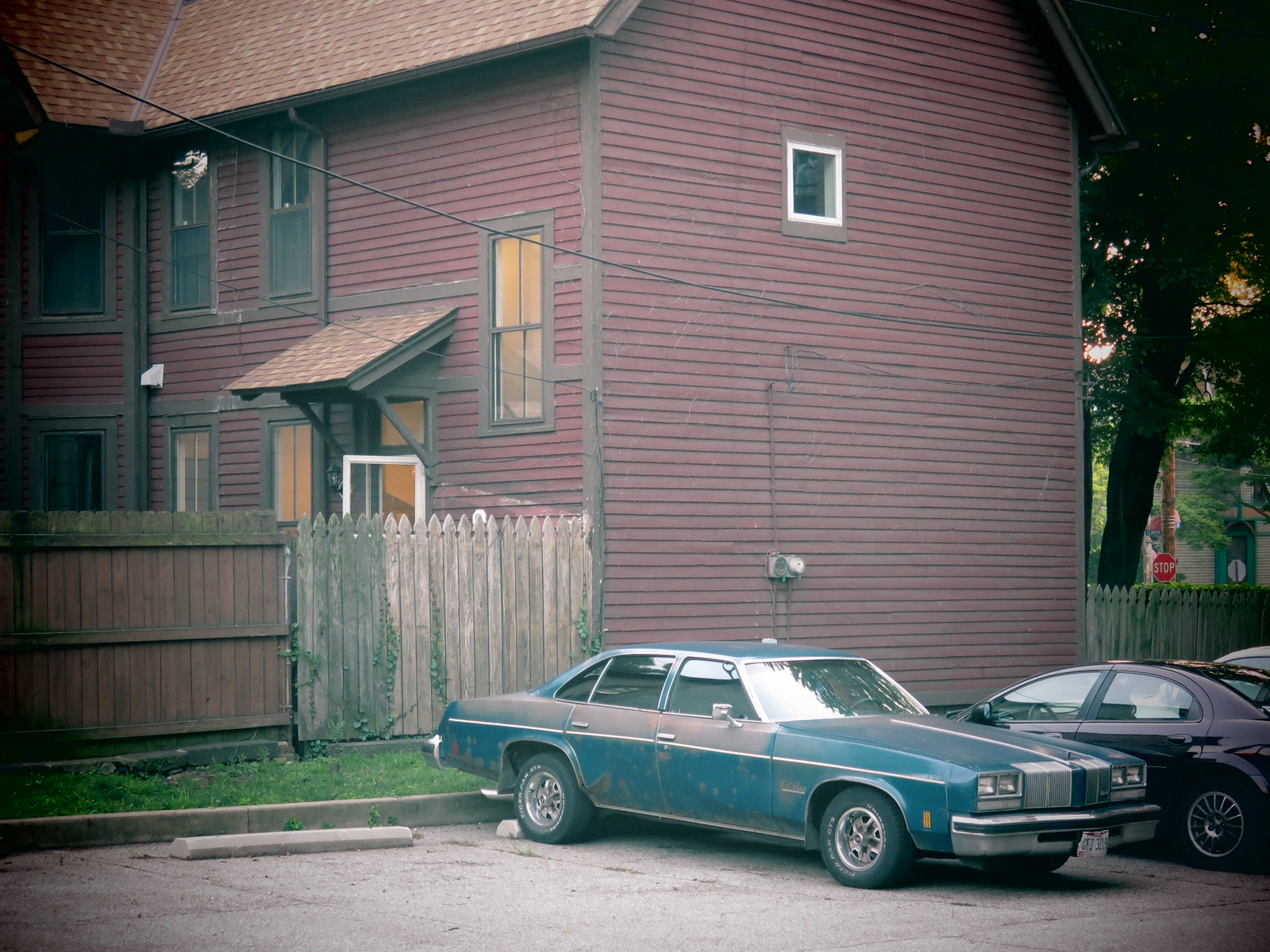
The Getaway [westside, Cleveland]: photo by David Grim, 17 July 2017


The Getaway [westside, Cleveland]: photo by David Grim, 17 July 2017

The Getaway [westside, Cleveland]: photo by David Grim, 17 July 2017

The Getaway [westside, Cleveland]: photo by David Grim, 17 July 2017

The Getaway [westside, Cleveland]: photo by David Grim, 17 July 2017

(a presence) [Steelton, PA]: photo by William Keckler, 5 November 2017

(a presence) [Steelton, PA]: photo by William Keckler, 5 November 2017

(a presence) [Steelton, PA]: photo by William Keckler, 5 November 2017

Halbe Treppe / Mezzanine [Second Church of Christ, Christian Science, Hartford, Connecticut]: photo by Martin Bartholmy, 2 November 2017

(mother night): photo by William Keckler, 2 November 2017

(mother night): photo by William Keckler, 2 November 2017

(mother night): photo by William Keckler, 2 November 2017

journey in this summer night III: photo by Mindaugas Buivydas, 14 August 2017

journey in this summer night III: photo by Mindaugas Buivydas, 14 August 2017

journey in this summer night III: photo by Mindaugas Buivydas, 14 August 2017

Untitled: photo by POP SNAP, 25 April 2011








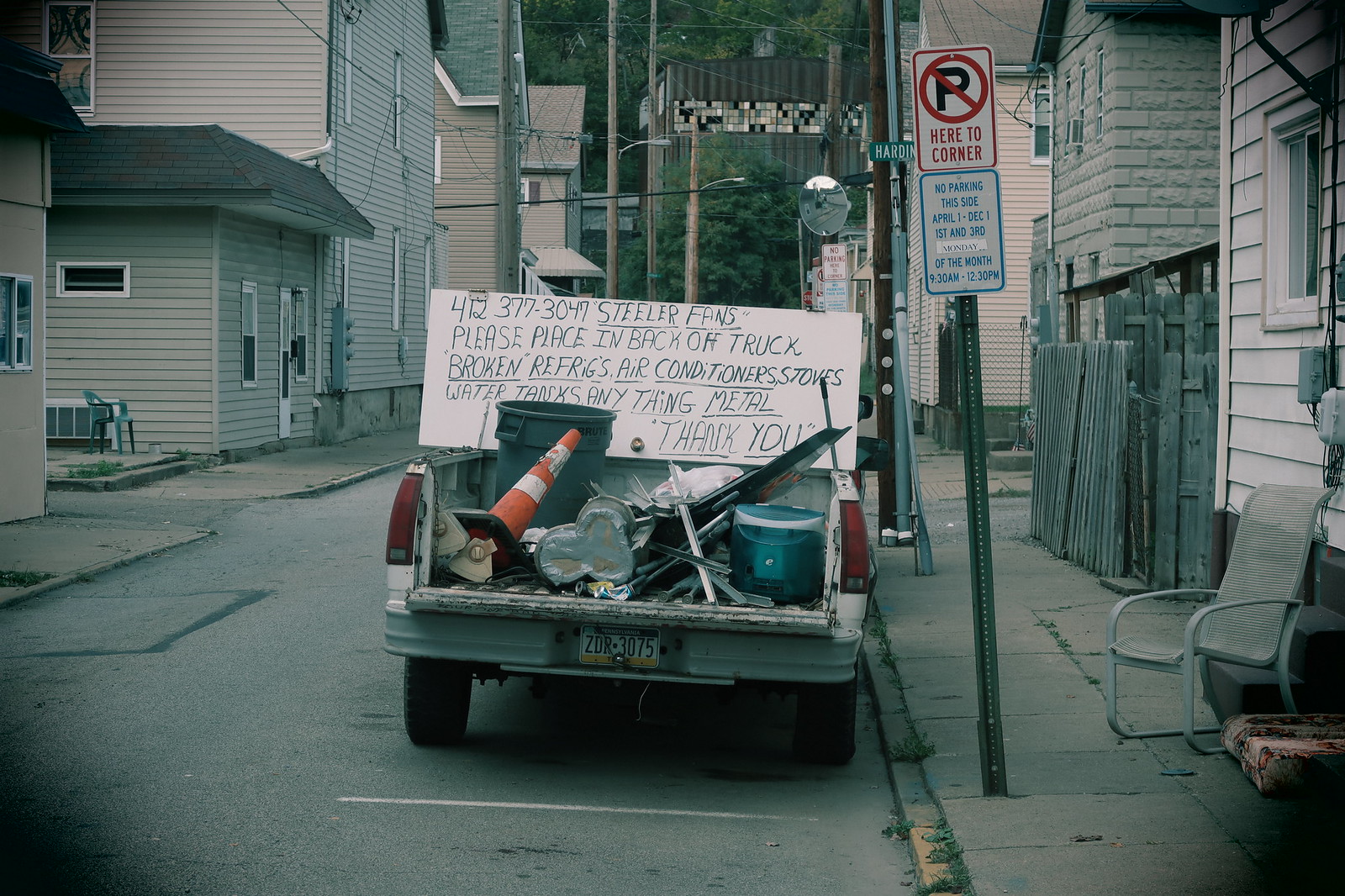


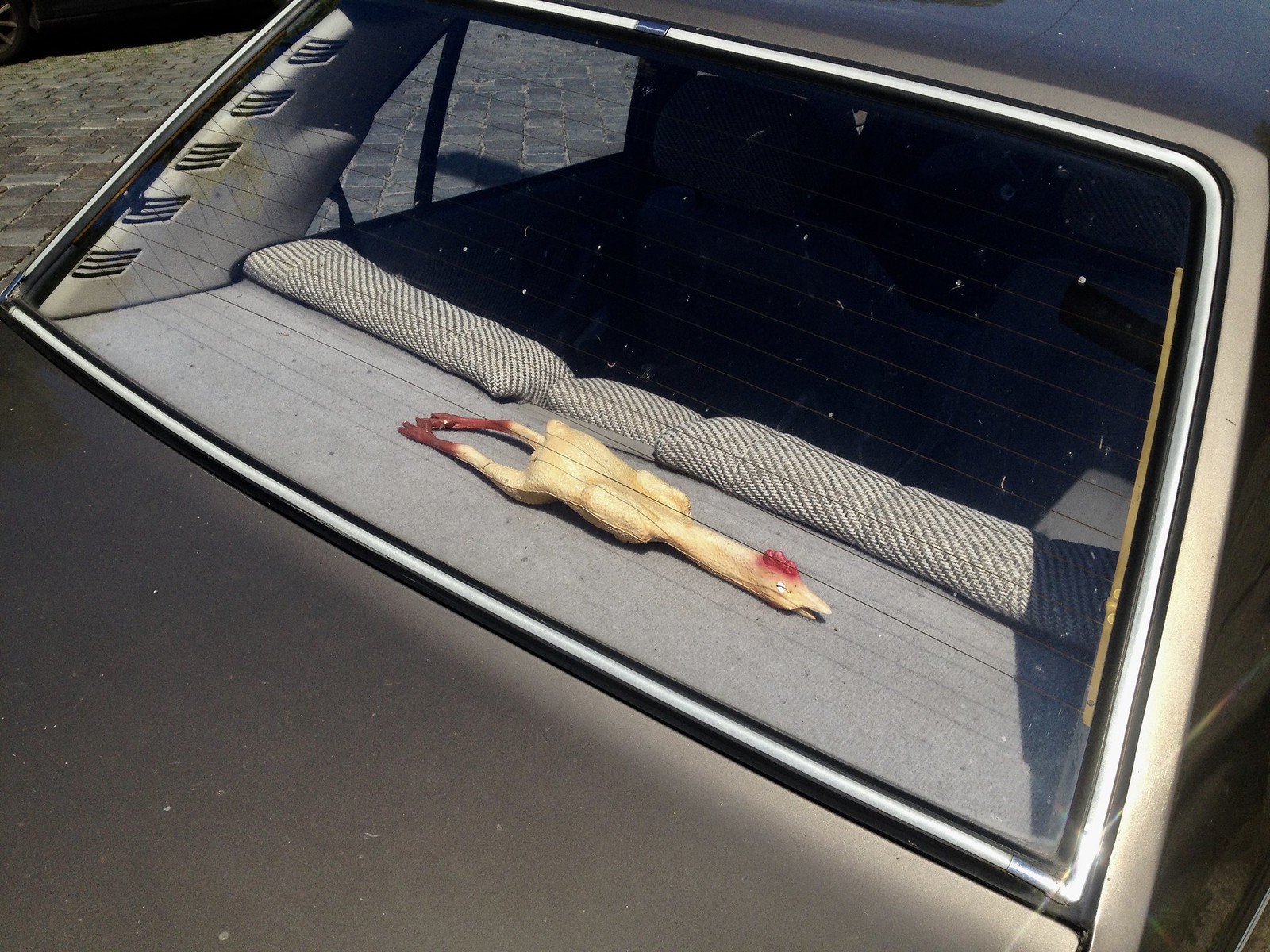



16 comments:
Summer 1994 Naropa Institute Boulder, Colorado 20th Anniversary attracted Amiri, Cecil Taylor, Joanne Kyger, god, even Ken Kesey, who got railroaded.
But Joanne, she chided me for a week for following Cecil around at a post reading party with a bottle of champagne and refilling his glass. Also learned something about the limits of memory from one of her workshops, but what stands out is her Japan journey with Gary Snyder (who was also in attendance). It wasn't she who told about the abuse she suffered, but some other old hand/gossip.Funny what one remembers and what sticks.
All that aside, Joanne was truly a treasure.
I'm exhausted with this one, TC. More than two ancient eyes can take.
About four weeks ago I pulled out this very same DHL edict and reread his not very egg manish judgement. I still think on the Poe score he's full of shit.
Malibu I hadn't read in years, but it all slowly came back just as the original instance for you must have all come back to fore. I'd say my score book on understanding the 'merikan fundamentals reads TC 15 - DHL zip.
The British came and went.
k
Thank you Doug and kent.
Funny what one remembers and what sticks, for sure, esp when so much is so sticky.
(Did god get his/her/its glass topped up I can't help wondering.)
Joanne was great chider who was deeply topped-up from the get-go.
When she caught up with me and angrily demanded to know what had happened to her Little black dress, the one she'd popped into the mail to me w/o explanation, and I had not the right answer (left it on shelf in landlord's closet at 43 Lower Park Rd, Brightlingsea, proved to be true, yet in her view inadequate), oh Hell had no fury then to compare.
Funnier funny thing, as you mention Ken Key-Zee in the same breath with Tyger Tyger, I'm reminded said then famed novel writer was w/o knowing it involved in the night of the honeymoon that broke bad into the sink -- well, small favours, at least it weren't the bidet -- when we three, the honeymooners + moi, adjourned to the downstairs bistro moveable feast-style -- and some intently eavesdropping french fake hippies, alerted by the nonstop torrent of wicked celebrity gossip issuing from the forever loose lips of the then extremely topped-up tyger tyger, heard those two little magic words and interjected, Ooh, Ken Key-Zee! followed closely by, Aimez-vous le hashish?, leading inevitably back up the narrow minuterie steps to that poor sink... had Cecil only been there then! And Hem and Fitz and Gertie! With some helpful Handi-Wipes!
kent, my eyes are ancienter still, in fact I am 78% blind and have no hands... so if you can imagine the doing of the thing, the two sleepless nights of proofreading and correcting a seriously faulty scan (someone must have been following the scanner around w/a bottle of buddhist champagne veuve triquot)... you would then perhaps appreciate more deeply the degree of insanity involved...
Another idea, put all this out of your mind for the moment (easier for you than for me! see the above!), come back to it in 15 years if there's still a cloud, give it another try, Bloody brilliant and spot on you'll say, and toss back un otro g & t, there in a pith hat under a palm tree in the upper peninsula tropics, where the retired bagel moguls hang.
However it is raining hard and there is a wet cat crying at the door, requiring immediate attention, and as providing same is sadly enough my final earthly employment, I must break off this scintillating exchange, and arise now and stagger in the general direction of clearly stated need (as vs merely playing around).
And btw... perhaps (as no one is listening) it is now time to reveal the fascinating hidden origins of the present endeavour: it can all be blamed on the photo of Poe's house and museum taken by Martin Bartholmy, who is merely a visitor to these ruin'd shores, ergo sees things w/an interested clarity not given unto us, the gibbering, floundering, permanently benighted not-even-quite natives...
BTW #32, talking of origins, has anybody yet paused to consider what part in tyger tyger's inimitable genius might possibly have been played by imponderable factors like background, Scottish, military, comfortable, santa barbara... Factors such as seem to elude the psychosleuths of the Strait Jacket Model Army, frinstance...
Q. What happens if and when the things the true greats don't want you to be thinking about turn out to be the things you can't keep from thinking about?
A. You get promoted, told to shut up and put your lore in order, and ordered to appear at Naropadopa for inspection by the gawking masses on the first day of summer, sharpish... more or less.
By the way #465, disclaimer, let it be duly noted that I never met nor was befriended by, befriended, edited, collaborated with nor lived for a longish while in very close dirt-road proximity to the Exalted Ms Tyger Tyger, nor did I continue to receive long cackling topped-up-to-over-the-top late night phone calls from her, dishing all our mutual celebrity dishees, up until the very end, or make that up till when we had to put a stop to it, as the archaic land line phone in this crumbling abode happens to be located eight inches from the head of the bed of the only person who lives here who does/did NOT ever in any way deserve these generous unsolicited tygerish attentions. (Not that Tyger didn't get that, she was ripped, she simply didn't care.)
It is moreover a great relief to find that in the disclaims hereabove one is supported by the august scholarship of Sir Jimmy Wales and his squadron of willing assts. (An asst can be construed as either an assistant or an asset, or both.)
"At the end of the '60s, Kyger joined other poets following the back-to-the-land movement. In 1969 she settled in the small coastal town of Bolinas, California, with Jack Boyce. The community and the landscape of Bolinas would feature prominently in her work from that point on. Among her friends, neighbors, and collaborators attracted to the liberal, arts-based community were poets Robert Creeley, Bill Berkson, Jim Carroll, Bobbie Louise Hawkins, Alice Notley, Lewis MacAdams, Duncan McNaughton, and Aram Saroyan, as well as artists Ken Botto, Joe Brainard, Tom Field, and Arthur Okamura."
See?
There is no pleasure so exquisite as knowing your life has left its mark to the extent that pains are taken to write you out of the history, ah if only they'd also left you out of the life, now that would have been the start of something much more interesting.
Somewhere there's a mouldering reel to reel tape JK and I made of a collaborative composition called The Void, early 70s, my 12-string minor chord bossa nova accompaniment, Joanne and Jim Brodey contributing bird-call vocals, text a summoning of the ghost of Edgar Allan Poe.
That's what happens when you've gone back to the land and become totally bucolic, with too much time on your hands, like...
Joe Brainard?! Huh? Does tourism count as going back to the land?
It was a fine place to be, before tourism. Just like everyplace else.
The photo at the top is as accurate a representation as I was able to find in attempting to make the events alluded to etc etc.
It was one of those oft frequented joints in St Germain, perhaps the Hotel de Buci, rue de Buci, or similar. Closet-size "honeymoon suite"-become-warzone, after the party's over.
Not easy on the maidservice, apres les americains.
Edgar Allan Poe, poet of legend, was born in either Launceston, Cornwall, or Launceston, Tasmania, take your pick.
If you don't believe me, just ask wiki, wiki know everything.
TC, let me just say I think DHL on EAP is all about DHL and not much about EAP nor USA. Of thee I sing.
btw, rereading that other masterpiece mentioned above, I had forgotten about your Robert Woods ID. My full name is Kent Robert Woodman. Father Robert Woodman who met and married the woman seated alphabetically next to him in college, my mother Josephine Woods.
Hey, Cousin!
k
KW, let me just say that to wobbily arise after three hours sleep out of the nightmarish past 72, amid a wild and woolly patch of climate breakup, and find that an actual decent hard working american citizen who's already been up for hours preparing baked goods for the masses (the oldest and most valuable human work, forget all that propaganda re the women of the night - can a hungry wolverine who hasn't eaten for three nights settle for a morsel so meagre?), touches the heart, causes the head to bow (well, gravity does that anyway), and almost convinces the critical sensibility to lose its principles.
Almost... but no, not so quick. For this critical sensibility is not a ruffled would be starlet on a team-vengeance roll, it would have you know.
"That said", as capt Stuffy once said, I must persist in the incorrigible view that for all his annoying mania(s), señor Orris was a brave, stubborn, deeply independent writer, who was, at times, onto something.
The fact that one is able to read anybody w/o shame speaks well for anybody, in the opinion of the beleaguered critical sensibility.
Also, may one say, if one subscribes to the honesty-provoking rhetorical method once known as Against the grain (now defunct), one very good way to find out whether something is worth looking into, is to check and see what's on the naughty list of every in the know American celeb pseudo writer. That's the stuff to look into.
It must have been hundreds of years ago now that I happened to be in a room in which DHL was briefly under discussion. Timid, cautious discussion, mind. Guys who read DHL know he cannot be spoken of in mixed company.
Uh-oh, here they come...
A notable 47th wave feminist "poet" entered the room, heard the word Lawrence, pivoted on a dime, gonzo.
Now that's what I call an open mind.
But does open mean empty? Ha, gotcha! Caught in the sticky web of the bad Dharma!!
The fact that that something still possesses the ability to bother people even a little bit suggests to me that, like I say, Mr Orris was onto something. Bless his brave tubercular little heart.
Granted he was not a celebrity Buddhist. Celebrity buddhism and working writer are concepts that cannot coexist in any known epistemological universe.
I keep hearing that Asian buddhist fascism (well, genocide, corruption, and all like that) is not true fascism or what is it again, not true buddhism, or simply not true. The eikon here is Aung San Suu Kyi, the little lying flower girl with the big whip and friends in highly-self-caring, mindful places.
But Mr Orris... a working writer, remember those? Work like bagel makers do? Not just a collector of likes and hits and prizes and fake love and paid reading invitations. But yeah, way unAmerican.
Now here, for example, is a true good American.
On the still other polydextrous hand, had he been a mindful self-caring little celebrity bullshitter who survived a miracle cure at the Magic Mountain Mayo Clinic in time to go big game hunting on the back lot at naropadopa afterparty productions, mind you, that boy Orris might have gone a long way.
Now admittedly this represents a rather weak and sporadic defense as I have perhaps already confessed, but... and the soaked half wild drowned-rat freeloader cat just once again came and went, out into and then once again in and out of the dark and stormy night...
Ah yes, Robert Woods, my alter ego, my stronger, swifter, younger, darker, biologically and doubtless in every other way superior alter ego! You've unmasked me, KW! C'est vrai, c'est moi!
at first i was intrigued by dhl's views on poe, and was reminded of dabrowski's views on positive disintegration, but stopped reading when it seemed to me he was going way off track - i recalled that dhl thought dostoyevski's 'grand inquisitor' won the argument with jesus in brothers karamozov
speaking of asian buddhist fascism - well, as krishna said, people have both divine and demonic tendencies - and as wavy gravy said, 'as i told my mirror this morning, it's all done with people' - cf. book 'zen at war' by brian victoria
Did I mention the balance of SICAL is in this man's opinion brilliant, oft times profound, and unlike almost anything else I've read? No defense needed, though I loved reading and enjoyed provoking yours. Briefly my point is this: no where else does he leave the path of illumination for each of these new world characters. What did they say? How are they saying it? Specifically what changes make them American? Whereas the chapter on Poe, for me, becomes the story of a straw man whereby the individual he's taking to task is himself.
Dave, leave Eddie alone.
k
Well, my job as defense attorney for DHL is beginning to feel a bit, what would be the word? Tenuous?
No. The job is mine to have and hold as long as I want it.
Been down that road before.
Just read the last line of his piece on Poe to get some idea why Americans hate this essay.
The thing is, when you read it closely and stay with the man's mind -- I'm not saying anybody or anybody has to or ought to do this, but I've done it, so evidently it can be done -- poor sickly febrile David is revealing his deep sense of identification with poor sickly febrile Edgar.
Rara avis x 2.
Nothing to do with blame or judgment.
Ah, Wavy Gravy, whom I can't help thinking of as Hugh, because that was his name when we met and were tribal hippies of a feather together, chez le Group Image, E. 4th St NYC, summer 1967.
The tribe had a sort of band, we'd all roll out in vehicles to some unsuspecting college like Stony Brook, and make hella noise till police came.
Now Hugh didn't come out for the shows, good thing that was for him too, as on our way to Woodstock (the folk festival), 1967, our merry band of runaways, chauffeured by a pair of congenial Hell's Angels just in from the Coast named Richie and Clyde, caught the attention of NY state police. Some punk in the back of the open truck had weed, naturally. Upstate NY jails get lonely at night etc.
I figured then and later Hugh was too smart to get himself caught up in that sort of thing. All credit.
Then somewhere early into in this present too-longish incarnation, Hugh and I became sort-of neighbours, with him and his present cast of friends and associates occupying a large house on Berryman St, whence the organization of Camp Winnerainbow, Hugh's project, proceeded.
So we were both "around", as it were, yet not.
Then in 2012 a car ran me over and I lost the ability to move myself as far as Hugh's home fort.
Not that I wanted to go there, etc. Just saying.
Now I am assuming that at this moment Hugh, like you and me my dear Mistah C, remains a breathing american senior citizen, bless his heart.
When we first met he was always wearing those American flag aviator overalls, the clown persona inaugurated I believe under the tutelage of Lenny Bruce.
"As I told my people this morning, it's all done with mirrors."
-- from The Wit and Wisdom of Aung San Suu Kyi.
Amazingly rich post, Tom. Thanks. Almost too much to take in. I esp. love "Dharma Committee Rules" and "An end to innocence; or, into the hotel room sink with it." Now I also want to re-read Lawrence's great little book.
k, sorry I missed that.
Not Dave's fault. Eddie started it.
tpw,
Man o' the hour for saying such kind things. Bless.
The small rain doth fall thro' the roof o' the sunken gymnasium
Also the large & medium
indeed i am a senior citizen (b. 1947), though not as senior as you or as mr romney (b. 1936 - dubbed wavy gravy by b.b.king in 1969, according to the story passed on by our friends at wikipedia)
my first acquaintance with dhl's writing was "lady chatterly's lover" - obtained in paperback at the navy exchange in naples in 1961 or so, when i was in junior high - and which disappeared from my room at home within a week or so - did my mother find it (most likely), or my two-years-younger brother? i could ask the latter, even now, though he has in the intervening decades become a bible thumper and may possibly remember inaccurately
those wishing to read or re-read studies in classic american literature may be pleased to find it at their fingertips, courtesy of the university of virginia -
http://xroads.virginia.edu/~HYPER/LAWRENCE/lawrence.html
Thanks for that mistah c. The text is pd in UK, not so much here. That UVA scan has 2,000 errors per page, but does provide a useful reader version for mere commoners such as us.
Everyone's mother found Lady C hid under bed or covers or etc.
Everyone's mother, discovering and looking into it, may have thought, So what's the big deal. It can't have been totally breaking news. After all, how exactly did they get to be everyone's mother, without ever knowing or imagining such things.
A woolly mammoth just loped past amid the inundating climate breakdown downpour... a stream of unmoving red lights out there in the misting slush of the immediate Future... it's just been declared the worst traffic day in history of the area, and that's saying a certain something.
My those wm's are surprisingly speedy even when their wool be wet, don't you think?
Post a Comment